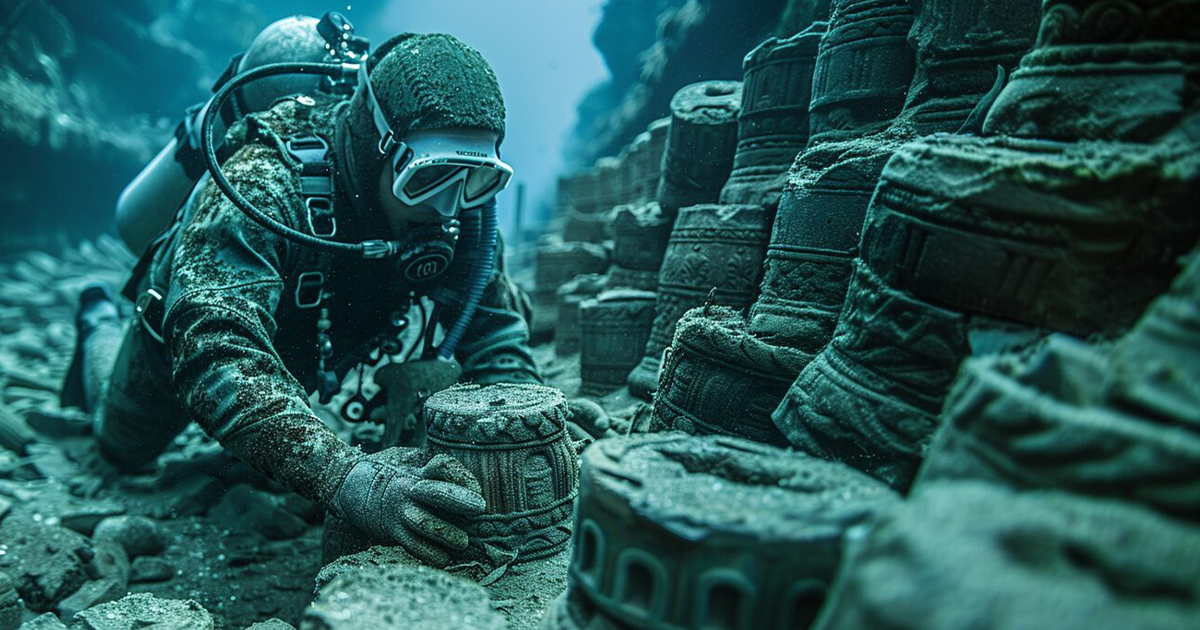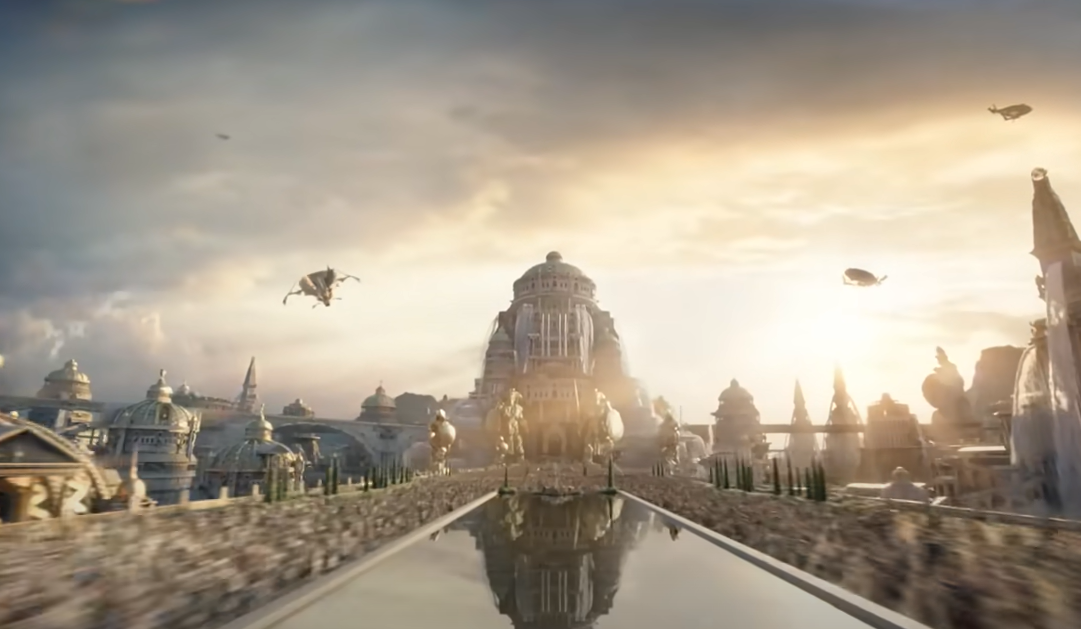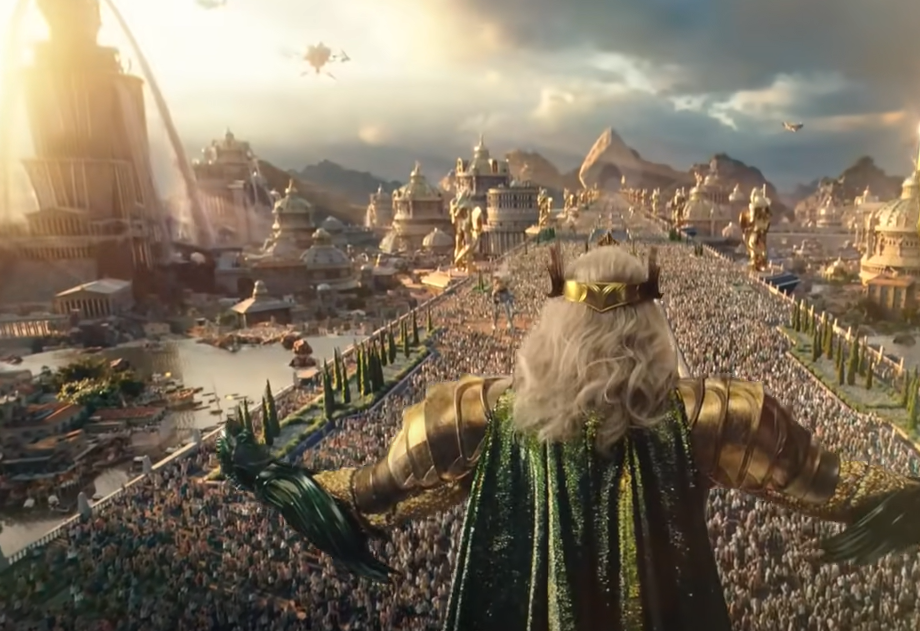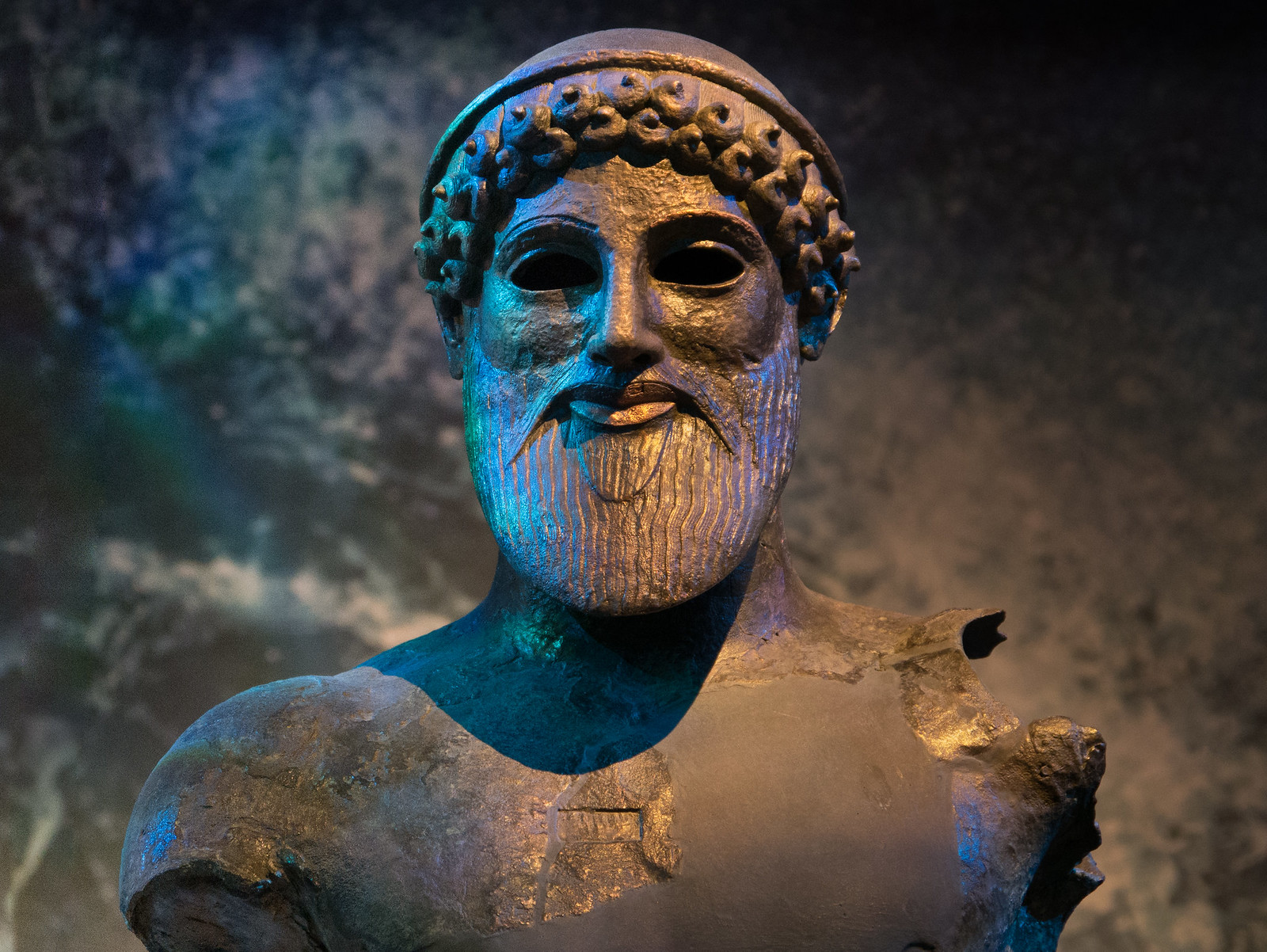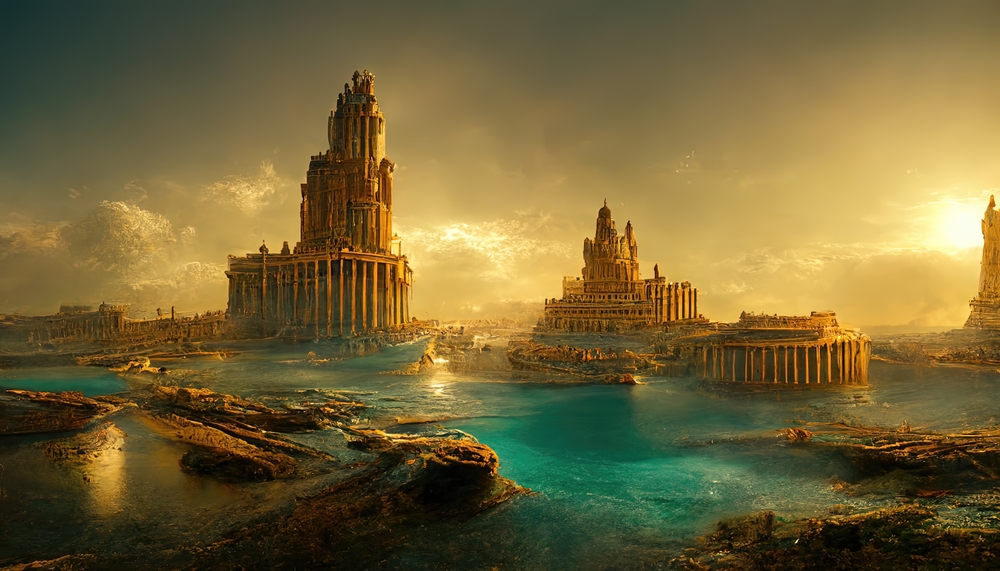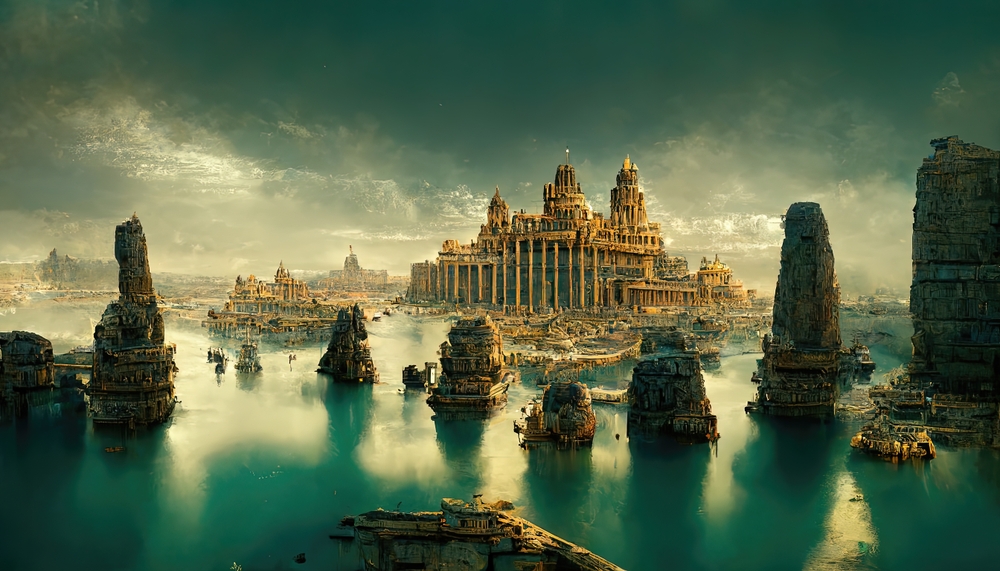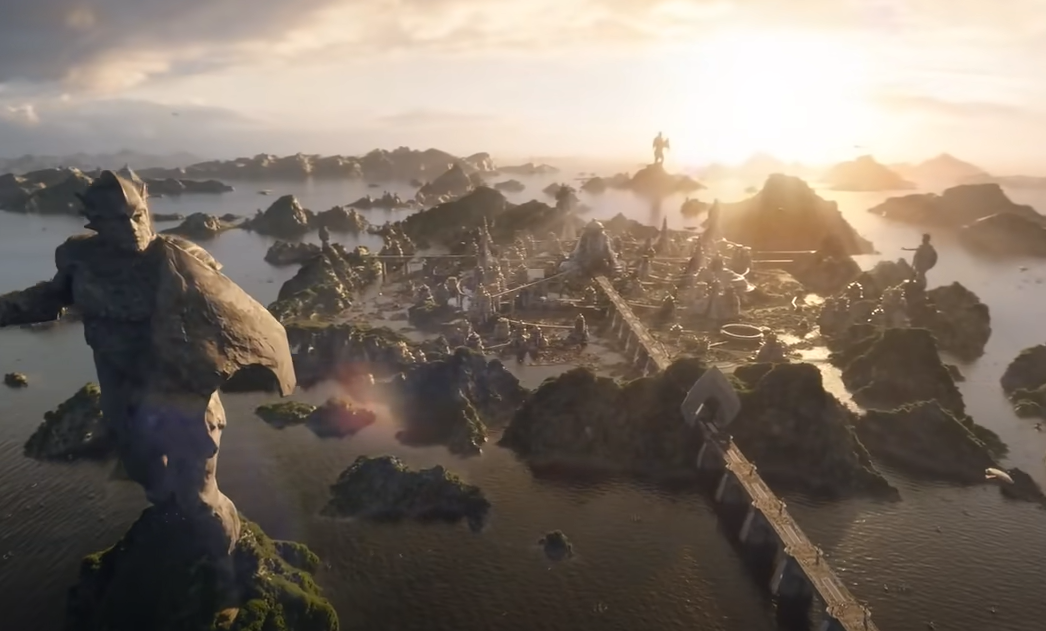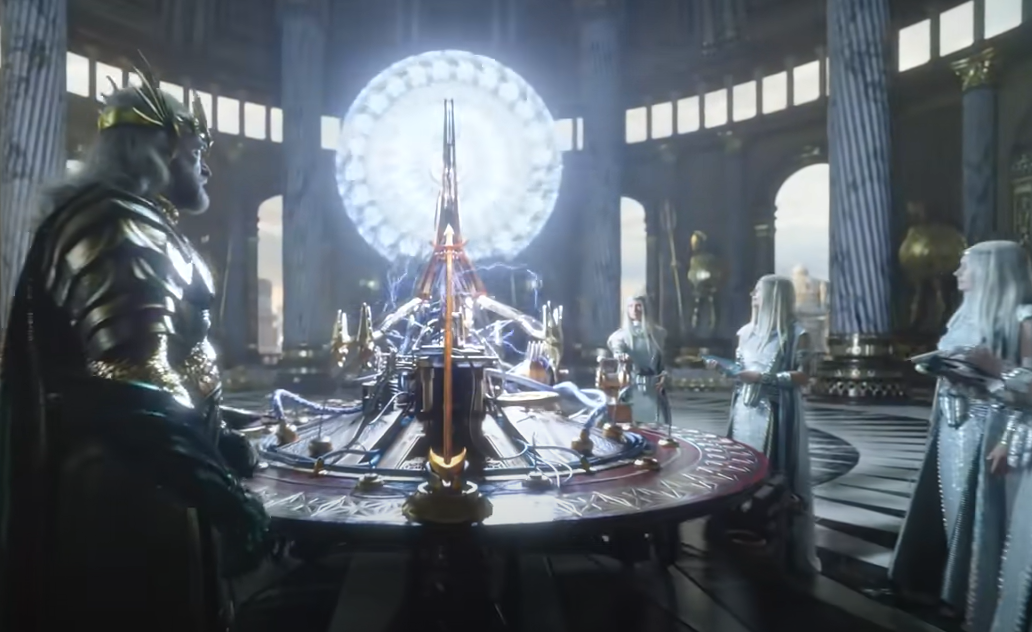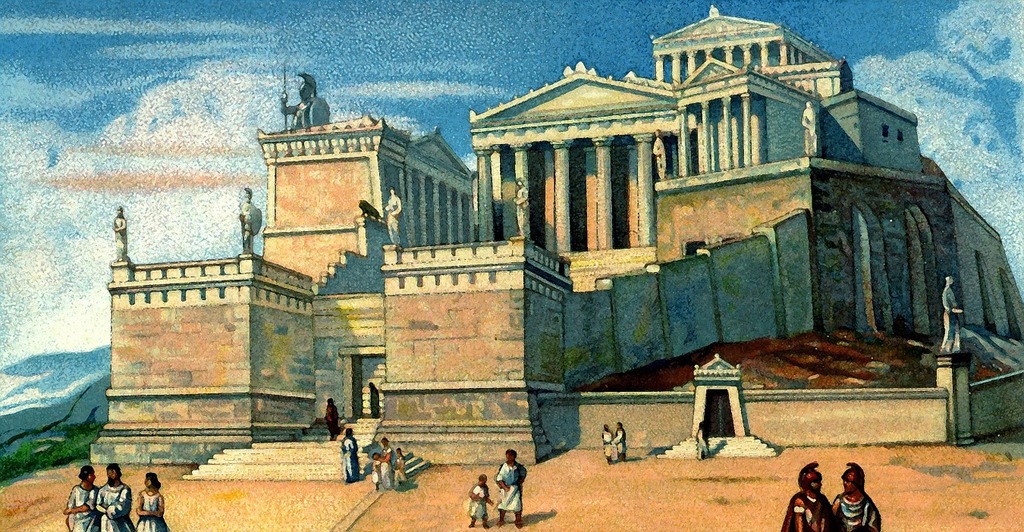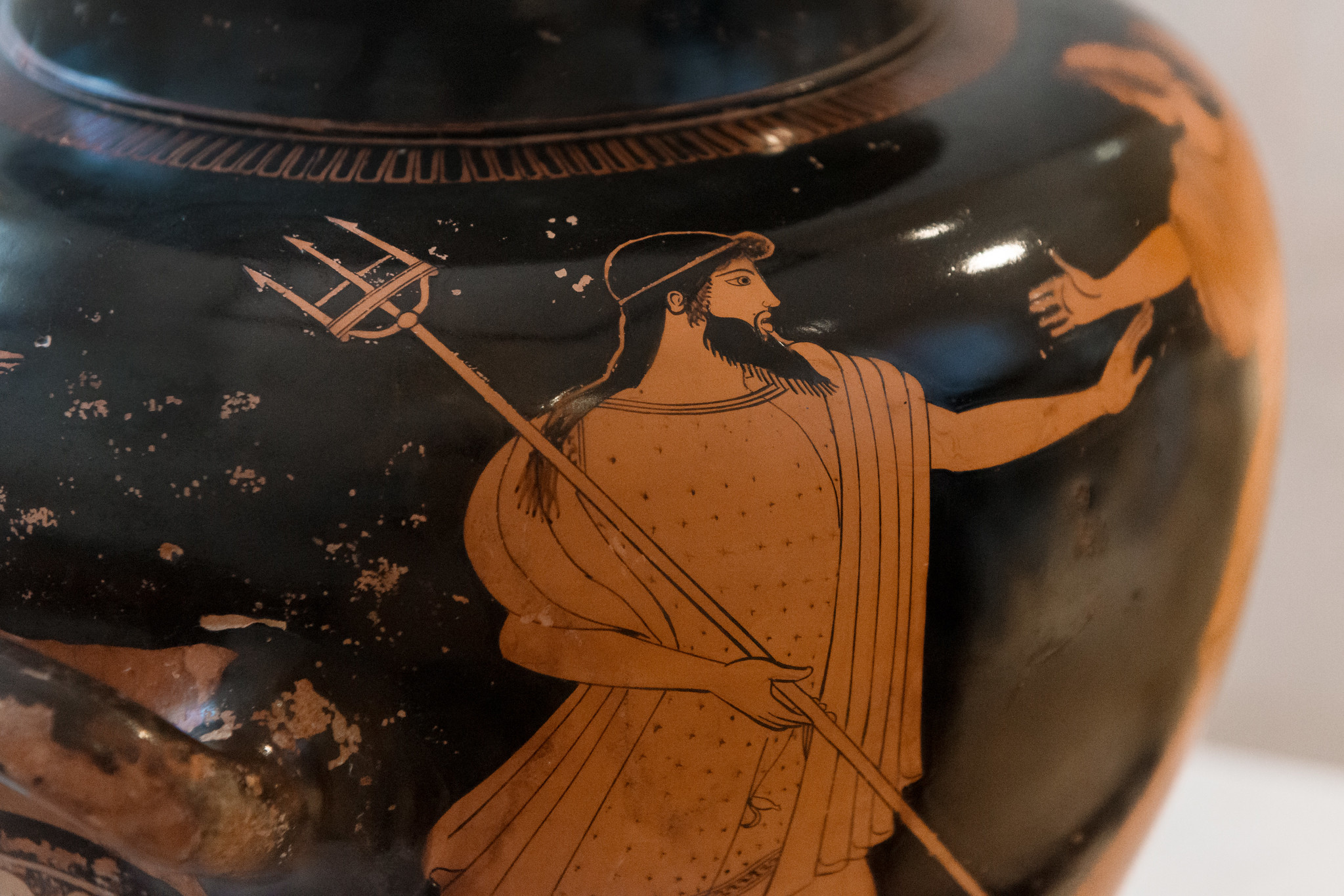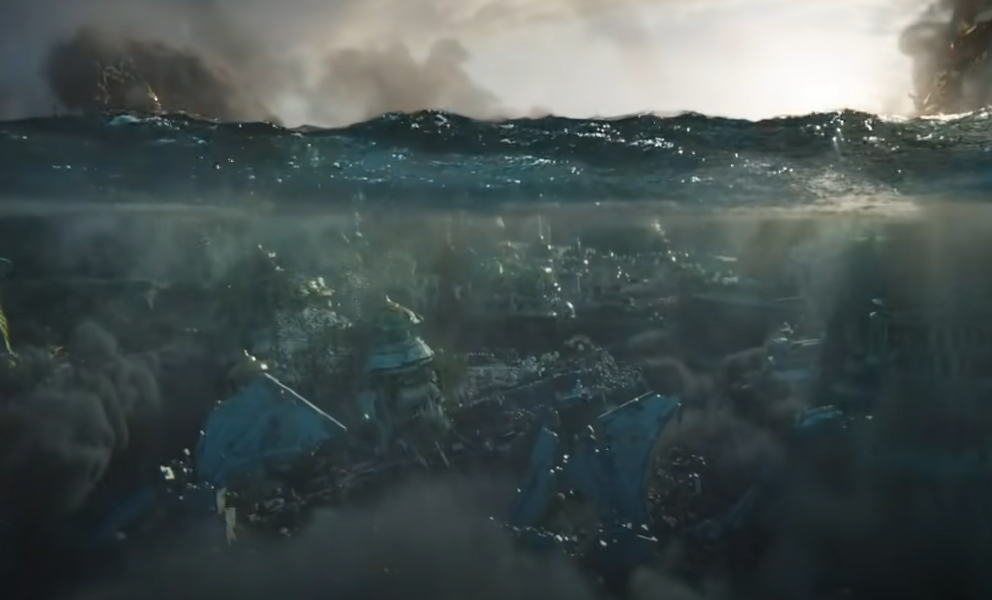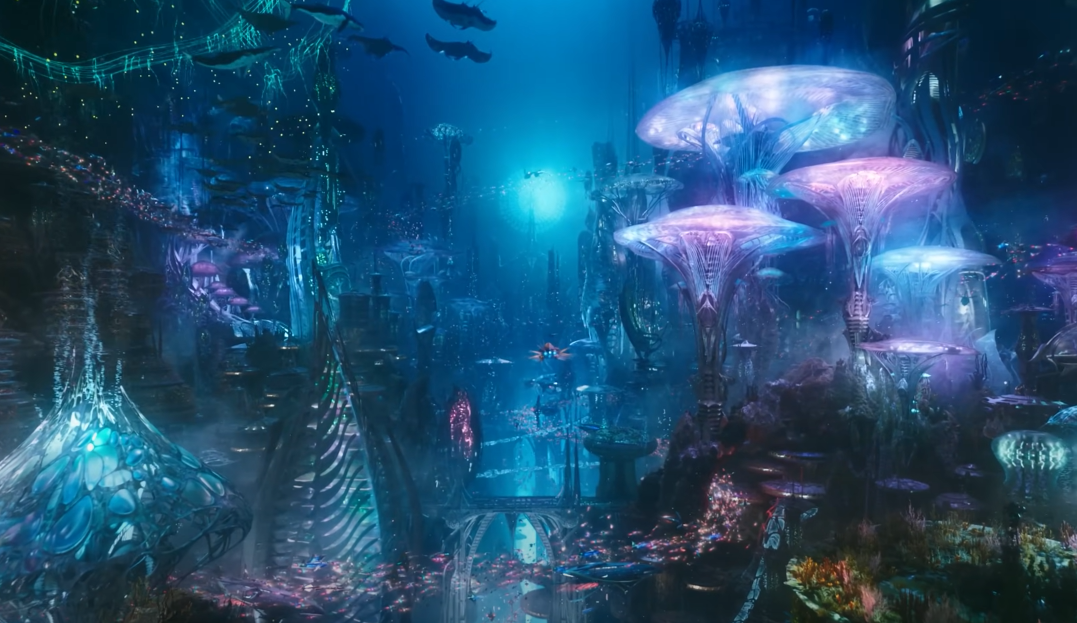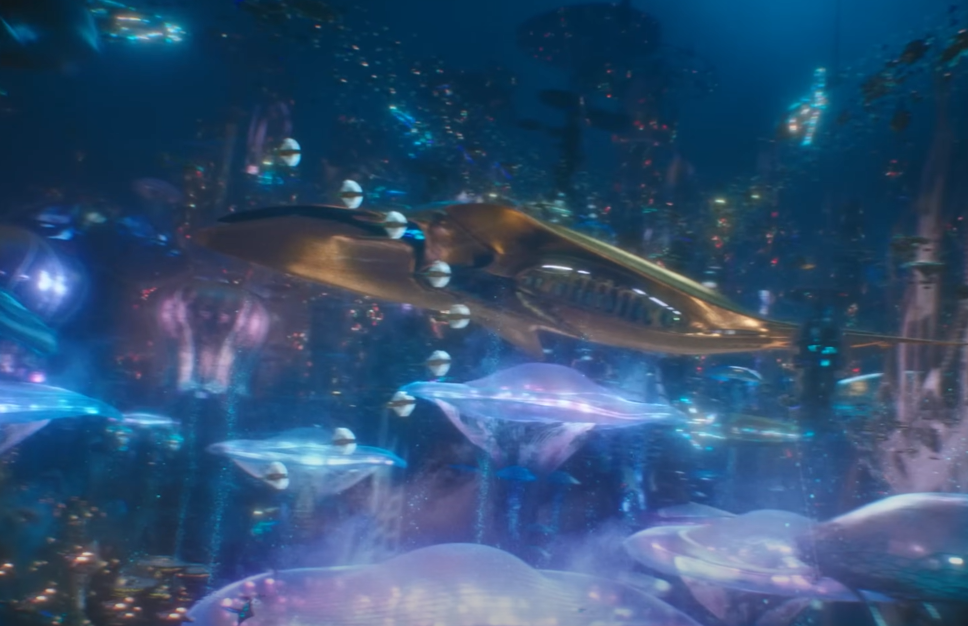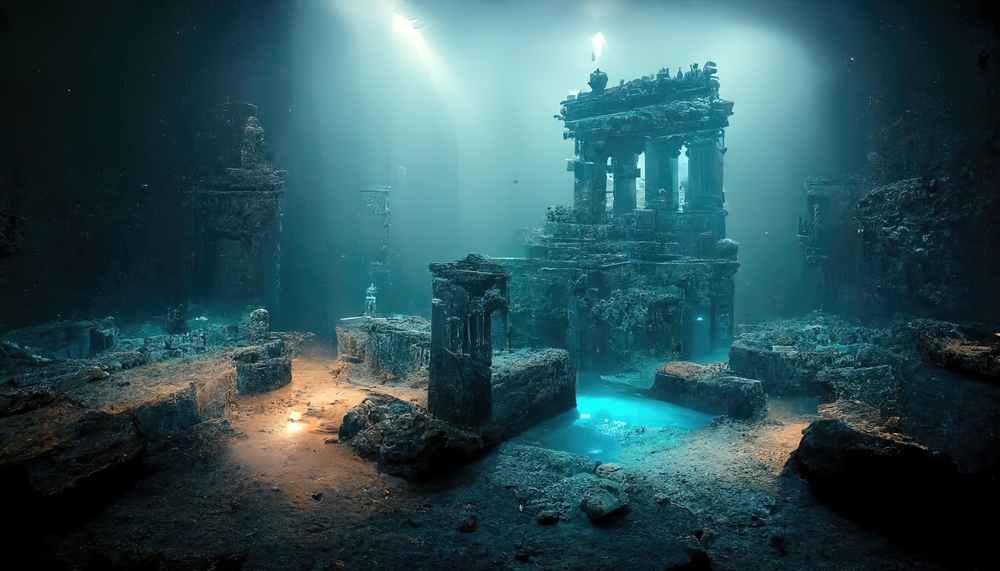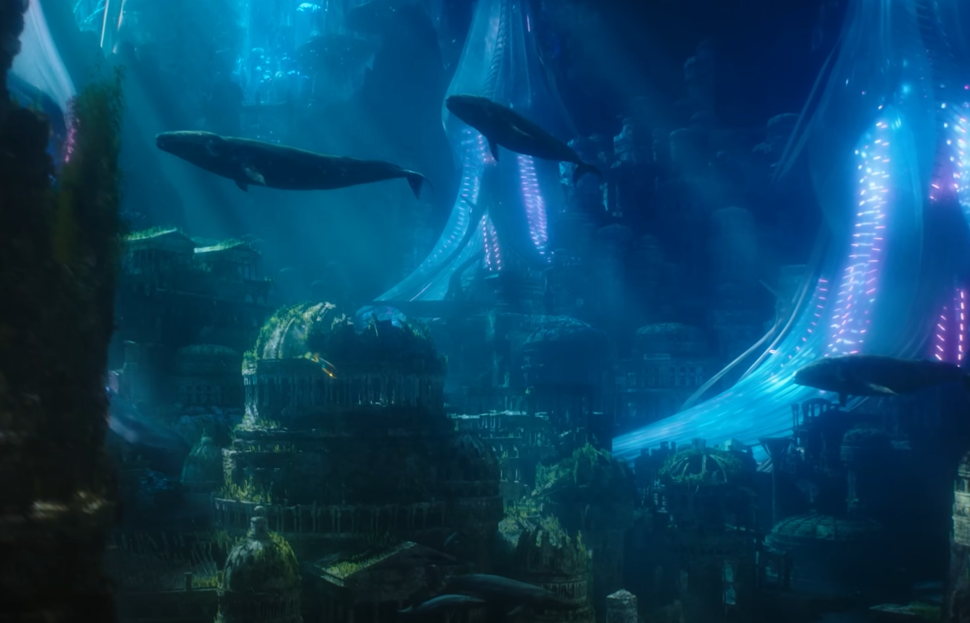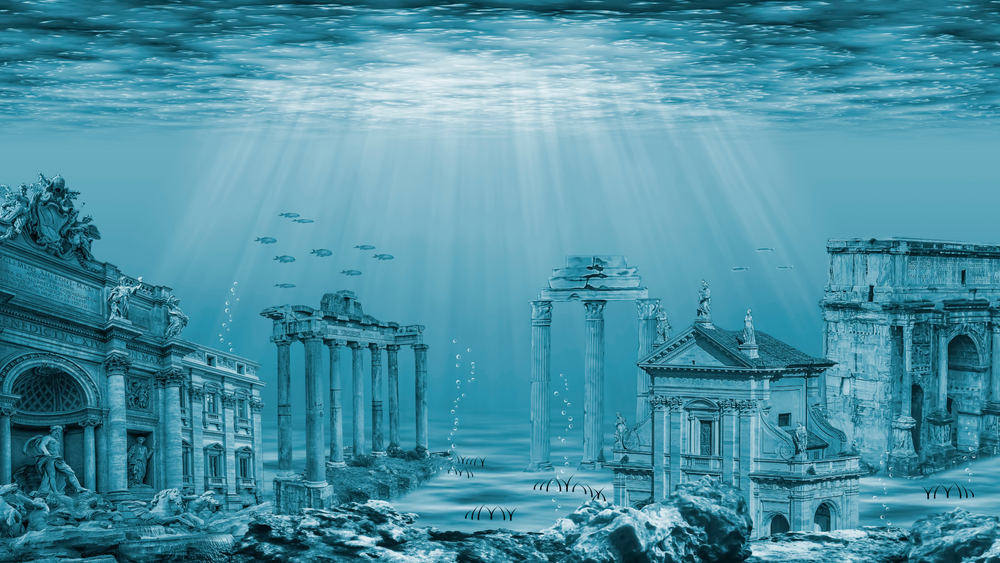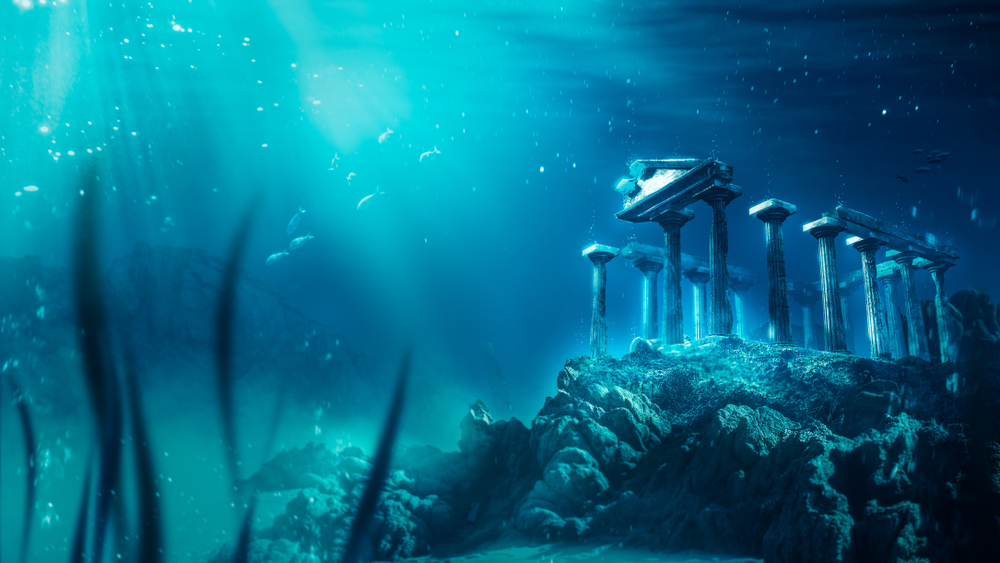The Lost City Of Atlantis
The legendary island of Atlantis was said to be a rich naval empire that existed over 12,000 years ago. It’s been described as a beautiful, Eden-like utopia with lush gardens, exotic fruit, and magnificent palaces made of gold and ivory stone.
It was said to be populated by demigods, led by Poseidon, the mighty god of the sea—that is, until the entire island suddenly vanished deep into the Atlantic Ocean, taking everyone and everything with it.
While many believe this island paradise to be fictional, there are some die-hard researchers who beg to differ. Here’s everything we know about the Lost City of Atlantis—including remarkable findings from a 2024 research team.
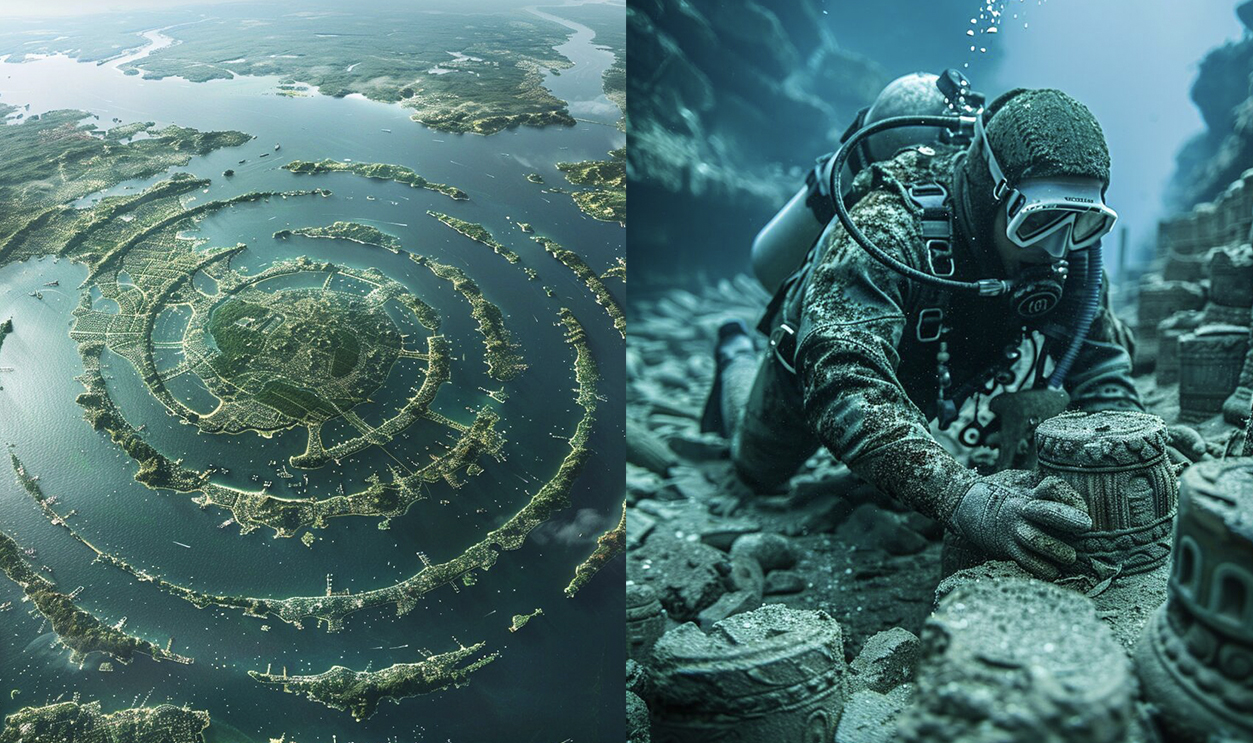
Who Discovered Atlantis?
The intriguing legend of Atlantis started with Plato, an ancient Greek philosopher of the Classical period. Plato wrote about it in 360 BC, saying that he had been told about it by his grandfather—who heard about it from an Athenian statesman, who heard it from an Egyptian priest.
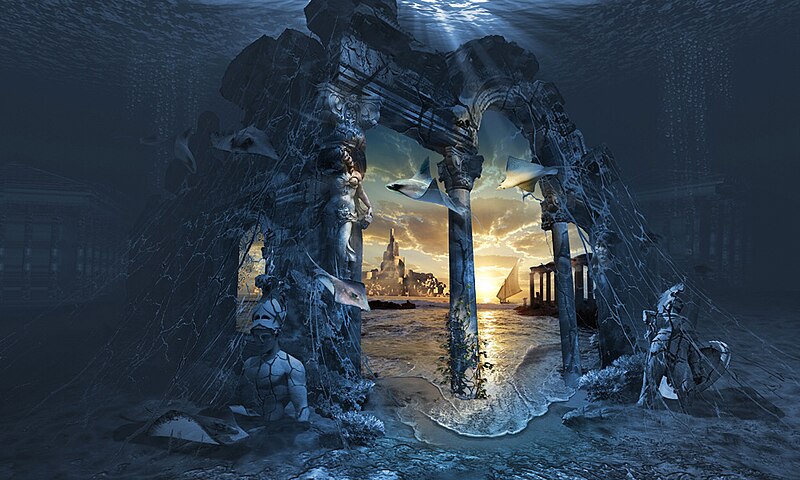 George Grie, CC BY-SA 4.0, Wikimedia Commons
George Grie, CC BY-SA 4.0, Wikimedia Commons
Where Is Atlantis?
According to Plato, Atlantis is believed to have existed somewhere near The Canary Islands and Madeira Islands, outward from the Strait of Gibraltar, and relatively close to the Mediterranean Sea.
But while Plato’s story is prominent, other location hypotheses include Helike, Thera, and Troy—all of which are ancient lost cities believed to have been submerged long ago.
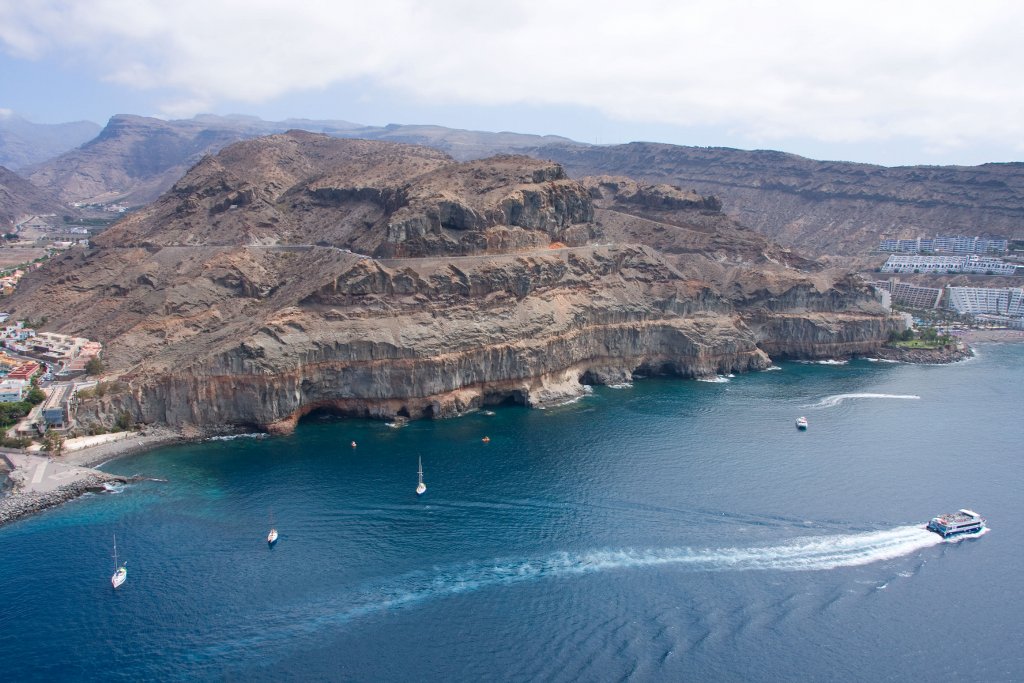 The Collector of Moments Photography & Video, CC BY-SA 2.0, Wikimedia Commons
The Collector of Moments Photography & Video, CC BY-SA 2.0, Wikimedia Commons
How Big Was It?
While it is often referred to as a city, some believe Atlantis was an entire island nation.
According to Plato, Atlantis was “larger than Libya and Asia combined,” which, in Plato’s time, would have referred to modern-day northern Africa and over half of Turkey.
It is said to have been circular in shape, with ringed moats and a large canal running through the middle, connecting with the sea.
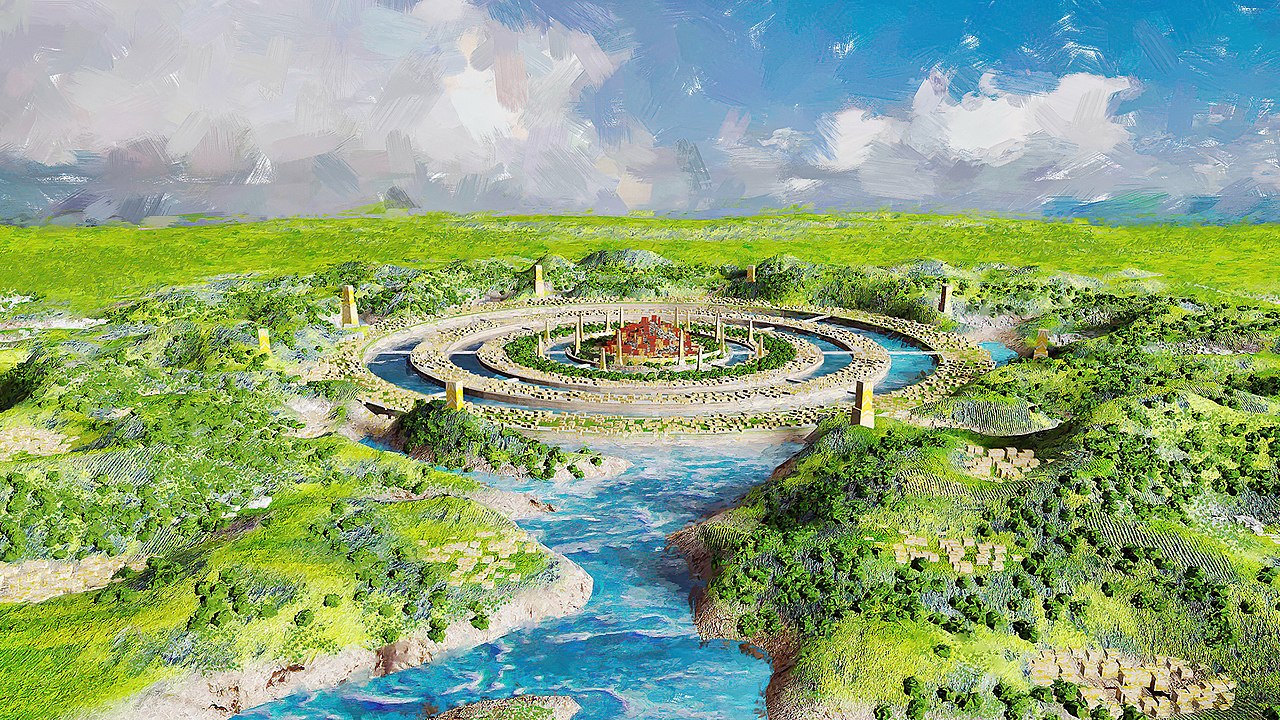 Віщун, CC BY-SA 4.0 , Wikimedia Commons
Віщун, CC BY-SA 4.0 , Wikimedia Commons
What Did It Look Like?
Atlantis was said to be a beautiful place, brimming with natural resources, lush gardens and corals, large mountains, exotic fruit, impressive architecture, and advanced technology. It’s been described as a true paradise, with a utopian civilization.
But there’s something about the people of Atlantis that leads many to believe this island haven may actually be more fiction than fact.
Who Lived In Atlantis?
As of today, there are no written records of Atlantis, and so everything we know has been passed down for centuries. But according to Plato, we do know a little about the Atlanteans—the people who called Atlantis home.
Given its assumed size, Vasilios Paschos—a Greek writer who focused his work on Atlantis—estimated the population could have been close to 60 million.
What Were The People Like?
Plato believed the Atlanteans were divided into different social orders to do their tasks, much like the caste system in India. They had a fairly good life where all of their needs were fulfilled and people generally lived in harmony.
Plato claimed they were a socialist economy, where “neither had any of them anything of their own, but they regarded all that they had as common property".
But the seemingly perfect life of the people isn’t what’s so hard to believe.
Who Did The People Descend From?
Many of the people in Atlantis were believed to be descendants of Greek gods, specifically Poseidon, the god of the sea. Poseidon put down roots in the Lost City and had families with mortal women—essentially populating the archipelago with demigods.
As some put it, the residents of Atlantis were half god and half human—which may be why they were so advanced during a time when the rest of the world was still in the Neolithic period.
How Did Poseidon Get The Land To Begin With?
According to Plato, the Hellenic deities of old divided a bunch of land so that each deity would have their own lot.
Poseidon was given a large plot of land that was inhabited by people who were said to be more beautiful and intelligent than the rest of the world.
But it wasn’t until he fell in love, that Atlantis was officially born.
How Did Poseidon Create Atlantis?
At some point, Poseidon fell in love with Cleito, a mortal woman within the lands he was given. In order to protect her, he built a large palace carved from a mountain and surrounded it with circular moats, tall towers, and beautiful gates.
He called this palace “Atlantis". Afterward, the lovestruck pair got right to work on starting a family, creating more gods to help govern the land.
Who Ruled Alongside Poseidon?
Poseidon and Cleito ended up having five sets of twin boys. The eldest, Atlas, was made rightful king of the entire island and the ocean (called the Atlantic Ocean in his honor), and was given the mountain of his birth and the surrounding area as his fiefdom.
Atlas’s twin, Gadeirus, was given the rest of the island toward the Pillars of Hercules, and the rest of the boys were given chunks of land and power to rule over many men.
Essentially, this family ruled all of Atlantis.
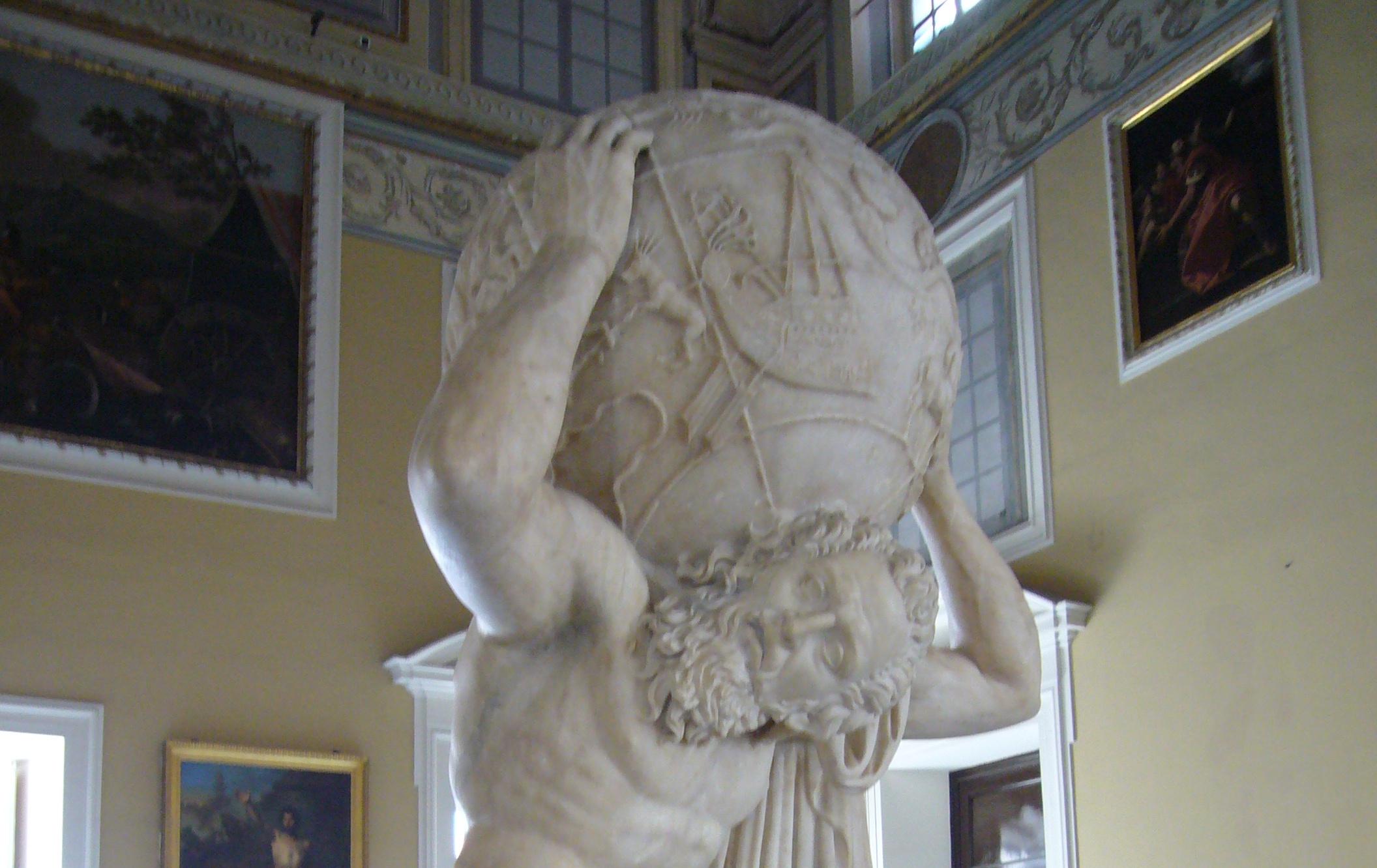 Lalupa, CC BY-SA 4.0, Wikimedia Commons
Lalupa, CC BY-SA 4.0, Wikimedia Commons
How Powerful Were They?
Atlantis was rich in resources, especially metals: silver, gold, and most importantly, orichalcum—the most precious gold-red metal. So, not only were they powerful, they were wealthy too.
And what do you get when you mix wealth and power? Greed. The Atlanteans may have had it all, but there was also a strong desire for more.
What Happened To Their Power?
The earlier description of the Atlanteans depicted the golden years—when they were still incorruptible. They were basically perfectly virtuous, considering they came from almighty gods.
However, as time went on and Atlas and his brothers had families of their own—with mortal women—the divine portion began to fade, and the godly blood became weakened, leading to trouble.
What Happened To Their Picture-Perfect Life?
According to Plato, when the godly blood “became diluted too often and too much with the mortal admixture, and the human nature got the upper hand, they then, being unable to bear their fortune, behaved unseemly".
Basically, human nature outweighed divine nature, causing chaos to follow.
What Did They Want?
The Atlanteans became more and more drawn to money and power and found themselves wanting more. They wanted to take over all the lands surrounding the Mediterranean Sea. And for the most part they were successful…until they targeted Athens.
 Leo von Klenze, Wikimedia Commons
Leo von Klenze, Wikimedia Commons
Who Won?
The Atlanteans waged war on Athens, and surprisingly, the noble underdogs claimed victory over the giant empire. Afterward, they went on to liberate all of the people and lands that the Atlanteans had captured during their power-hungry battles.
This war did not go unnoticed though—the gods were watching, and they were less than pleased.
What Did The Gods Do?
The Atlanteans suffered a moral decline right around the time the godly kings got together to discuss matters of the state—which happened every five or six years.
At this meeting, Zeus (Poseidon’s brother) had decided that the people of Atlantis had become pushy and greedy, and needed to be punished.
And although Atlantis was Poseidon’s baby, he did not disagree. They had failed him, and were deserving of what was to come.
 Relativity Media, Immortals (2011)
Relativity Media, Immortals (2011)
What Did Poseidon Do?
Poseidon, being the god of the sea, storms, earthquakes, and horses, was once nicknamed “earth shaker,” and was known to punish people using storms. These powerful sea storms would then wipe out ships, islands, and people as a result.
By now you can imagine what he had in store for Atlantis.
A Difficult Decision
Although Atlantis was Poseidon’s creation, which he made out of affection for his beloved Cleito, he knew the situation with its people was getting out of hand.
Shortly after the war with Athens, Poseidon made a difficult decision.
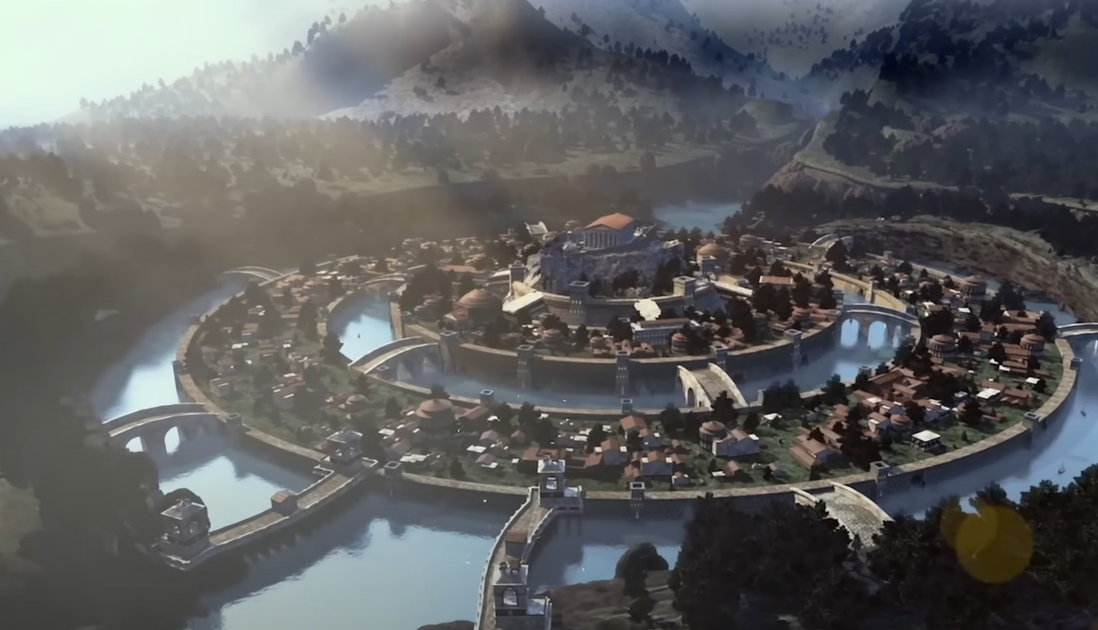 Prometheus Entertainment, Ancient Aliens (2009-)
Prometheus Entertainment, Ancient Aliens (2009-)
What Happened To Atlantis?
After Athens had delivered Atlantis a devastating blow, Poseidon was next in line. The Atlanteans had fallen out of favor among the gods, and their time on Earth had expired.
In a single day and night, Poseidon unleashed a series of catastrophic earthquakes, causing massive flooding that ultimately swallowed up the entire city of Atlantis.
How Atlantis Became A “Lost” City
The disaster caused so much damage to the land that it basically sank beneath the waves, bringing all of its people with it. The entire city of Atlantis sank to the bottom of the ocean in only one day.
At this point, you may be skeptical whether there is any truth to this great story or not. And believe it or not, there may be.
Is Atlantis Real?
The story of the Lost City of Atlantis is definitely a good one. With Greek gods, palaces made of gold, and half-human people, there’s enough magical details to keep most people interested.
But the interesting thing about these ancient fables is that we often find ourselves wondering where the idea for them came from in the first place. What exactly inspired the tale of the Lost City of Atlantis?
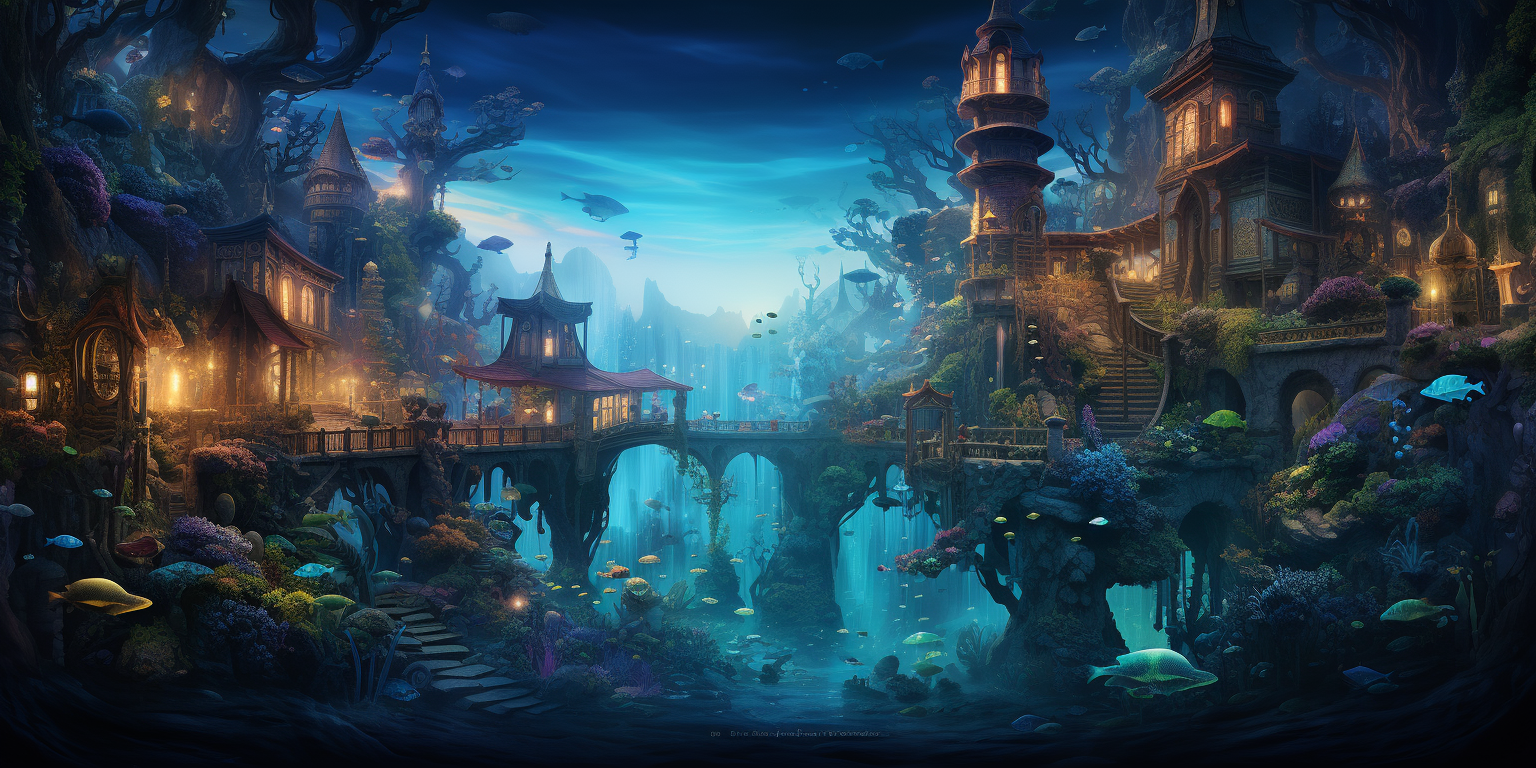 Sérgio Valle Duarte, CC BY 3.0, Wikimedia Commons
Sérgio Valle Duarte, CC BY 3.0, Wikimedia Commons
A Philosopher’s Take
Before we dive into the theories of modern-day explorers—which may actually change your mind about things—let’s find out what other philosophers have had to say about Plato’s seemingly made-up island paradise.
Much like today, some ancient writers viewed Atlantis as fictional or metaphorical myth; but many others believed it to be real—including many who studied alongside Plato themselves.
Aristotle And Crantor
Aristotle, who was a student of Plato, believed that Plato invented the island to teach philosophy. But then philosopher Crantor, a student of Plato’s student Xenocrates, believed Plato’s story to be real—and he has some pretty good reasons why.
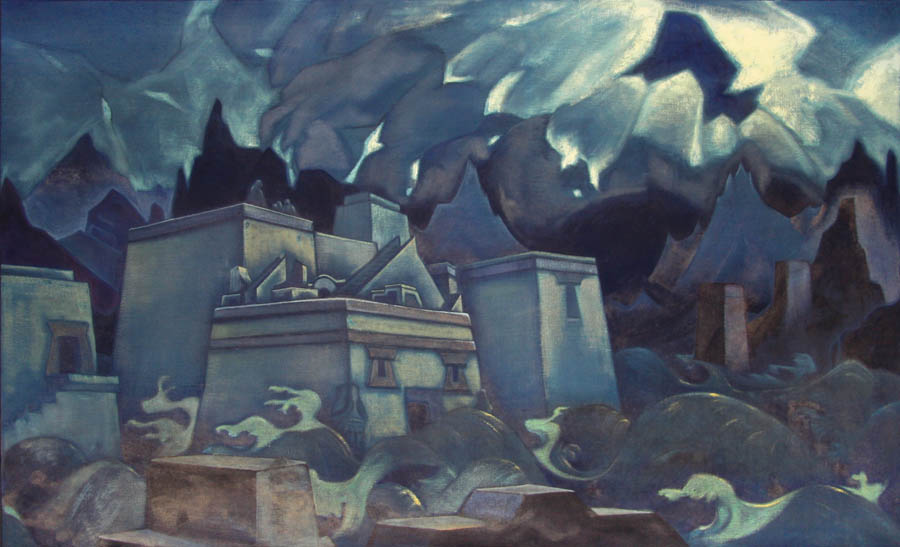 Nicholas Roerich, Wikimedia Commons
Nicholas Roerich, Wikimedia Commons
Crantor’s Theory
Crantor’s work, a commentary on Timaeus, Plato’s dialogue, is lost, but two other philosophers had reported on it. Crantor claimed he visited Egypt, had conversations with priests, and saw hieroglyphs confirming the story.
He also claims that there are “particulars written on pillars which are still preserved today”—fueling current desperate explorations for finding the truth.
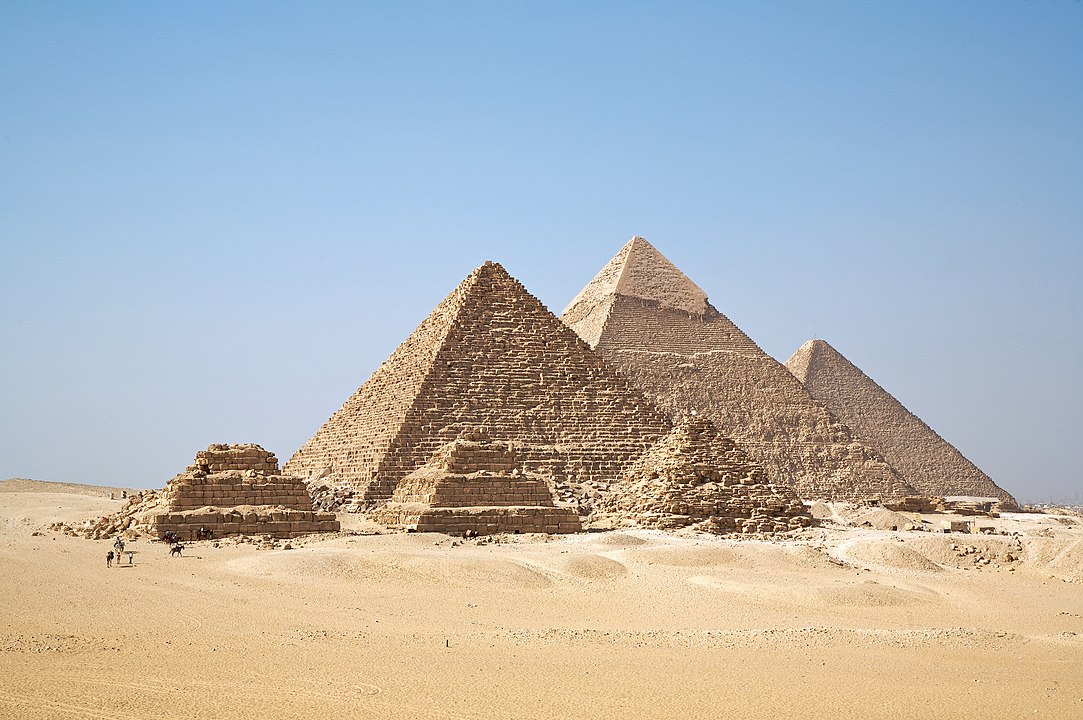 Ricardo Liberato, CC BY-SA 2.0, Wikimedia Commons
Ricardo Liberato, CC BY-SA 2.0, Wikimedia Commons
Who Else Believed Atlantis Was Real?
Crantor isn’t the only one who believed Plato, though. Other ancient historians who believed in the existence of Atlantis include Strabo and Posidonius, a Greek astronomer. They have often been linked to theories about the location, claiming the “Pillars of Hercules” may have actually been mountains on either side of the Gulf of Laconia—placing Atlantis in the Mediterranean, which gives credit to many of Plato’s details.
There’s one more historical theory that puts the focus on the Atlantean people when determining the existence of Atlantis.
 André Thévet, Wikimedia Commons
André Thévet, Wikimedia Commons
Atlantean Descendants
The fourth-century historian Ammianus Marcellinus claimed that the Druids of Gaul said that some of the inhabitants of Gaul had migrated from distant islands—possibly Atlantis.
It’s further argued that it is unlikely that out of millions of inhabitants, all would have perished.
Even with this theory, most people believed Atlantis was nothing more than a myth—that is, until people started actually diving for it.
Finding Evidence Of Atlantis
Nowadays, some of us may believe it’s nothing more than a fun fable, but others have taken a serious interest in the mystery, and have done extensive research to prove its existence—and the evidence is compelling.
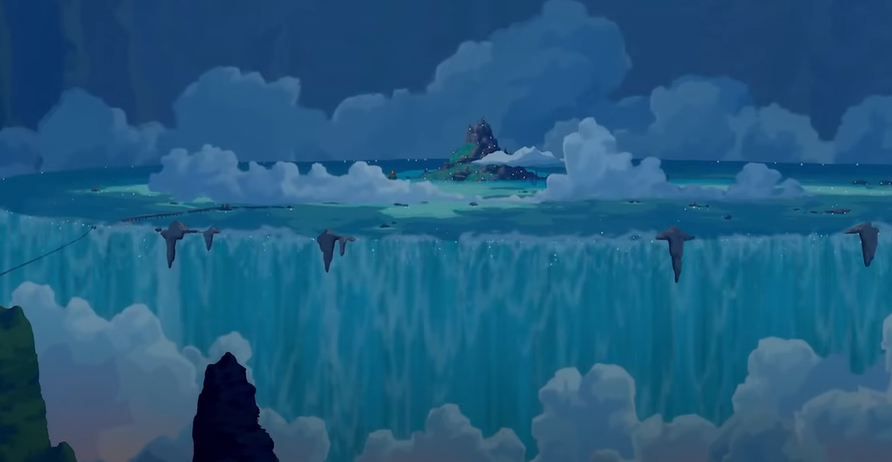 Walt Disney, Atlantis: The Lost Empire (2001)
Walt Disney, Atlantis: The Lost Empire (2001)
Diving For Clues
There are many people who have set off in search of the Lost City of Atlantis, doing deep dives for ancient artifacts on the seafloor. And each explorer has given us clues about the possible true location of Atlantis—with many recent discoveries leading to actual physical evidence.
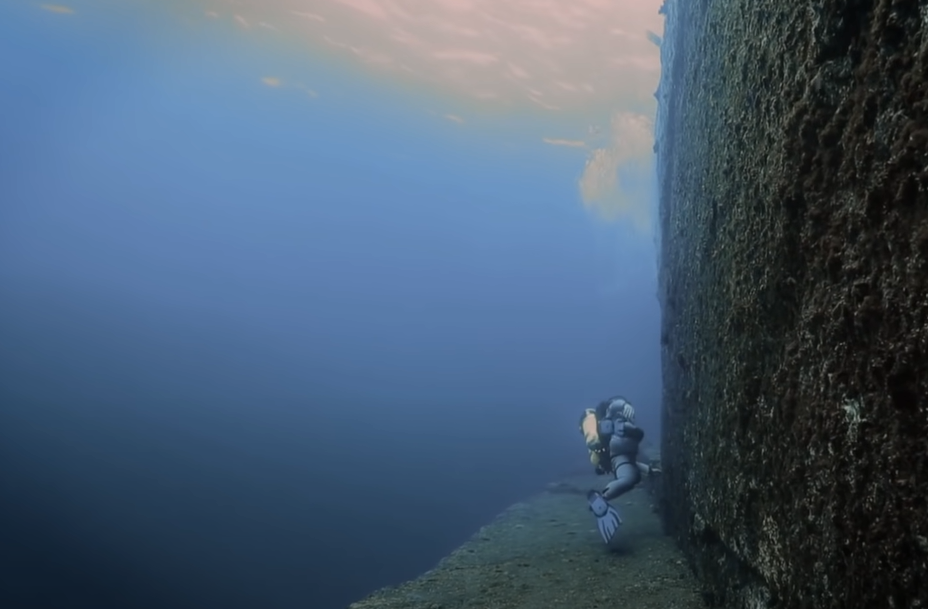 National Geographic, Drain the Oceans (2018-)
National Geographic, Drain the Oceans (2018-)
19th-Century Research
The idea that Atlantis was an actual historical place, and not just a legend invented by Plato, surfaced in the late 19th century. Before that, it was generally regarded as folklore.
But after people began diving and taking a more serious interest in its discovery, several other theories have now surfaced about the origins of Atlantis—the most widely known being by writer Ignatius Donnelly.
 English Wikipedia, Wikimedia Commons
English Wikipedia, Wikimedia Commons
Ignatius Donnelly’s Biblical Theory
In 1882, a writer named Ignatius Donnelly wrote a book called Atlantis, the Antediluvian World. Basically, he tried to prove that all known ancient civilizations were descended from Atlantis—which he saw as a more advanced culture.
He drew parallels between creation stories of the Old and New Worlds, attributing connections to Atlantis, which he also believed had a biblical connection.
Ignatius Donnelly’s Biblical Theory
Donnelly believed that the Biblical Garden of Eden existed in Atlantis. He also believed that Atlantis was destroyed by the Great Flood, which is also mentioned in the Bible.
He has now been credited as the "father of the nineteenth century Atlantis revival" and is the reason the myth endures today. But he’s still only one of many people who think they know the truth.
 Digital Genetics, Shutterstock
Digital Genetics, Shutterstock
Helena Petrovna Blavatsky’s Race Theory
Russian mystic and spiritualist Helena Petrovna Blavatsky, the founder of the Theosophists, took up Donnelly's interpretations when she wrote The Secret Doctrine in 1888.
She believed the Atlanteans were “cultural heroes". She believed in a form of racial evolution (as opposed to primate evolution), and regarded the Atlanteans as the fourth “root race,” which were succeeded by the fifth, the “Aryan race,” which she then identified with the modern human race.
 Historical and Public Figures Collection, Wikimedia Commons
Historical and Public Figures Collection, Wikimedia Commons
Helena Petrovna Blavatsky’s Race Theory
In her book, Blavatsky believed the civilization of Atlantis reached its peak between 1,000,000 and 900,000 years ago, but destroyed itself through “internal warfare” that happened due to the dangerous use of "psychic and supernatural powers of the inhabitants".
So, similar to Plato, she believed the people of Atlantis had supernatural powers that ultimately led to their own destruction.
Other occultists followed the same lead, tracing the lineage of occult practices back to Atlantis.
Debate About Race
Because of Blavatsky’s mention of the Aryan race, the Germans then believed the “Aryan-Nordic” master race had originated from Atlantis. But ultimately, many agreed that the Atlanteans were non-Caucasian, brown-skinned peoples—mostly because assuming they were Caucasian would contradict older groups and theories.
However, the belief that they were superhumans remains intact. And one other guy claims he has some proof.
Edgar Cayce’s Reincarnation Theory
American psychic Edgar Cayce (who claimed to diagnose diseases while he was asleep) often spoke about Atlantis. During his “life readings,” he claimed that many of his subjects were reincarnations of people who had lived there.
By tapping into their collective consciousness, Cayce declared that he was able to give detailed descriptions of the lost continent.
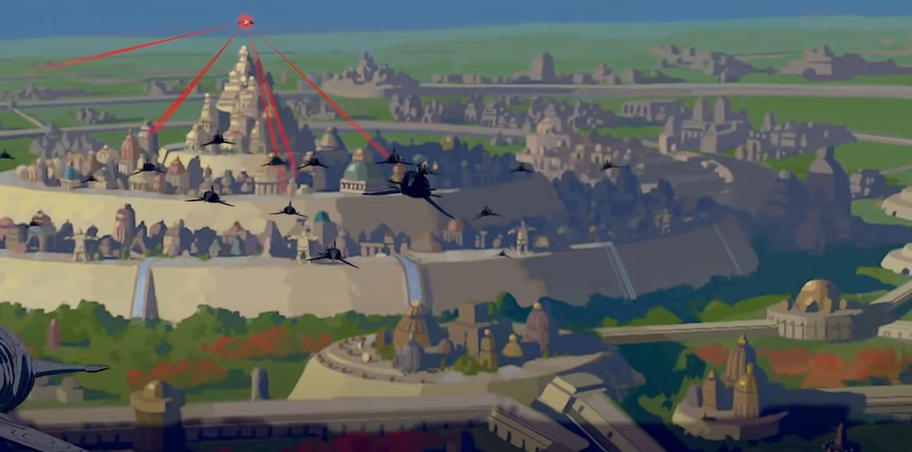 Walt Disney, Atlantis: The Lost Empire (2001)
Walt Disney, Atlantis: The Lost Empire (2001)
Edgar Cayce’s Predictions
Cayce also declared that Atlantis would "rise" again in the 1960s (sparking much popularity of the myth in that decade) and that there is a "Hall of Records" beneath the Egyptian Sphinx which holds the historical texts of Atlantis.
And while Atlantis did not rise again in the 1960s, a ground-breaking discovery was made instead.
 Emőke Dénes, CC BY-SA 4.0, Wikimedia Commons
Emőke Dénes, CC BY-SA 4.0, Wikimedia Commons
Plate Tectonics
In the 1960s, we learned more about continental drift and plate tectonics, discovering that the Earth is composed of a number of large tectonic plates which have been slowly moving, or drifting, over the last several billion years.
This discovery basically means it’s “impossible” for there to be a lost continent.
While present-day philosophers and classicists agree that the story was likely fictional, there is still debate on what served as its inspiration.
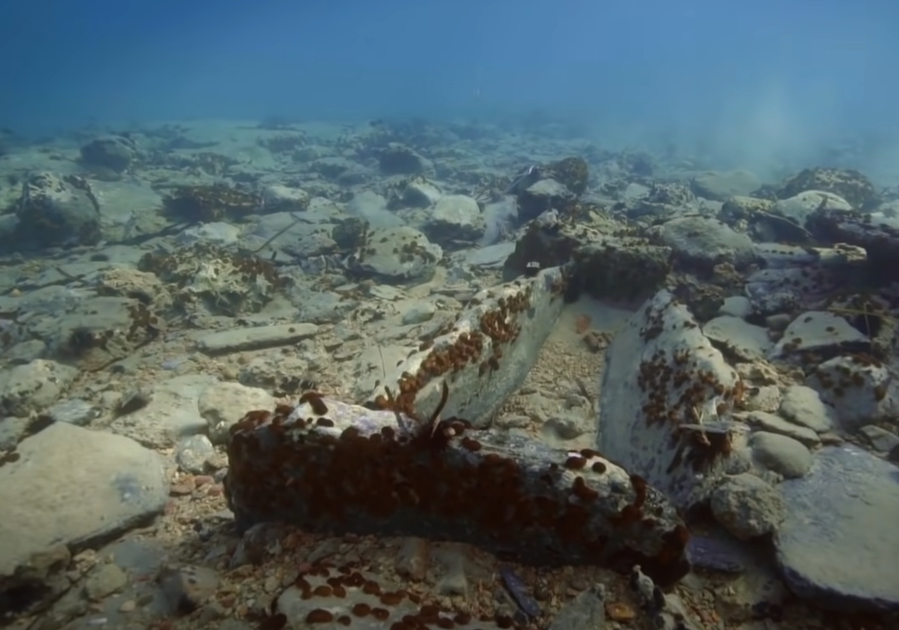 National Geographic, Drain the Oceans (2018-)
National Geographic, Drain the Oceans (2018-)
What Inspired The Tale Of Atlantis?
It is commonly believed that Plato told the story as a warning to his fellow citizens against the desire for naval power. But a detailed and magical story like that has to have some sort of inspiration.
For those who believe the story to be mythical, there are some theories as to what that inspiration may have been—the Thera Eruption being one of them.
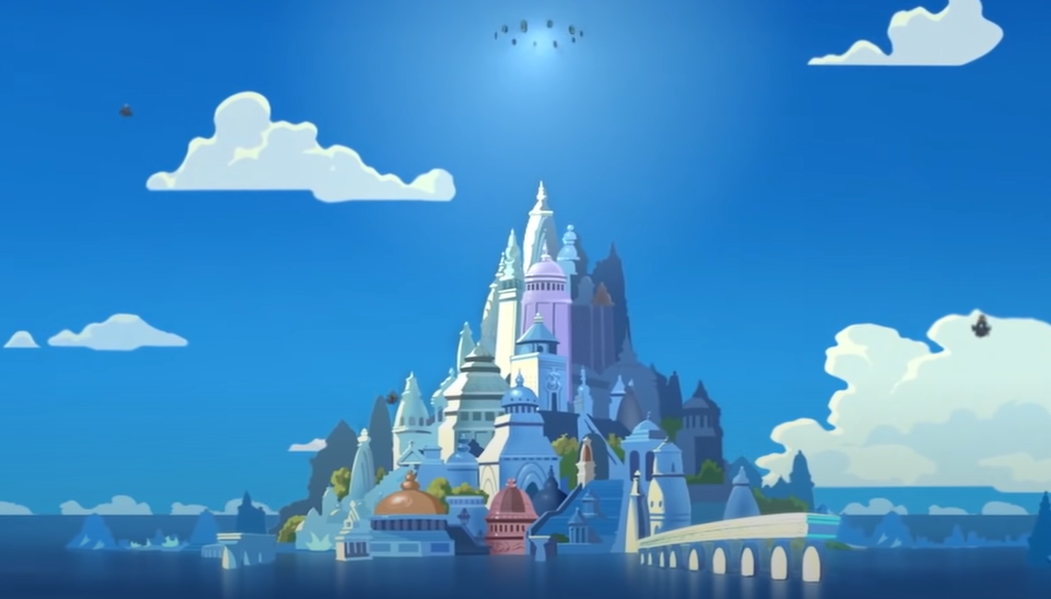 Walt Disney, Atlantis: Milo's Return (2003)
Walt Disney, Atlantis: Milo's Return (2003)
What Was The Thera Eruption?
Dated back to the 16th century BC, a large tsunami is believed to have devastated a beautiful and powerful Greek island called Thera, further leading some to believe that this may have been the catastrophe that inspired Plato’s story.
This area is now called Santorini, and to this day remains a hotspot for Atlantis explorers. Another one is Azores.
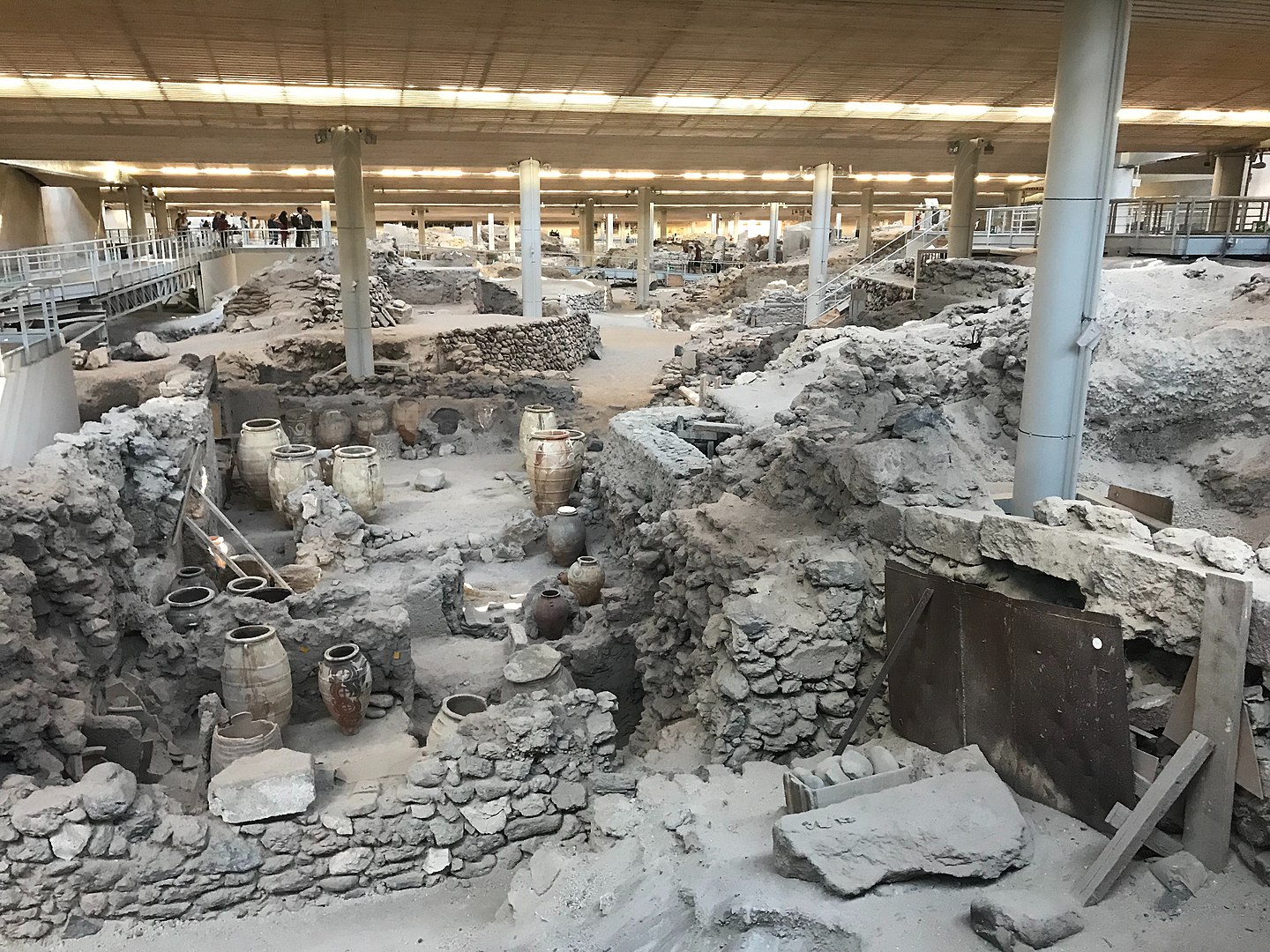 Rt44, CC BY-SA 4.0, Wikimedia Commons
Rt44, CC BY-SA 4.0, Wikimedia Commons
What Happened At Azores?
Various island groups in the Atlantic Ocean have been identified as possible locations for Atlantis, notably Azores—one of two autonomous regions of Portugal. Cores of sediment covering the ocean bottom surrounding the Azores prove that it has been an undersea plateau for millions of years, causing some to believe the unique setting is actually a sunken city.
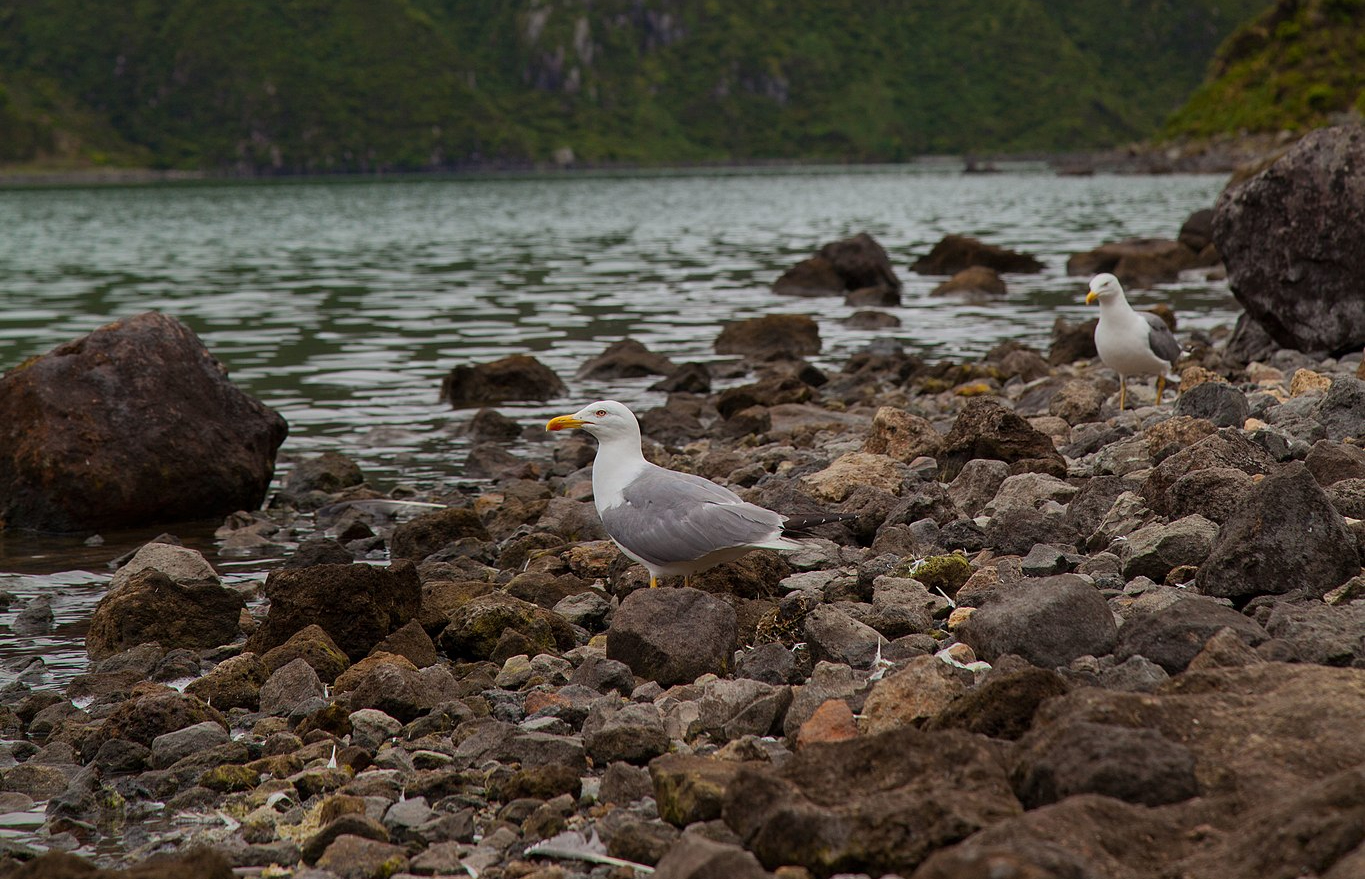 Cinty Ionescu, CC BY 2.0, Wikimedia Commons
Cinty Ionescu, CC BY 2.0, Wikimedia Commons
Location Hypotheses
We could go on for days about the dozens of possible locations of Atlantis. The mystery has frazzled researchers and explorers for centuries, leaving almost no stone unturned. There are people around the world who believe Atlantis could be located in the Atlantic Ocean, in the Mediterranean Sea, in Europe, and even in Antarctica. Some theories go so far to blame the Bermuda Triangle.
And while these theories are mostly bogus, the physical evidence that has been recently found can be difficult to object.
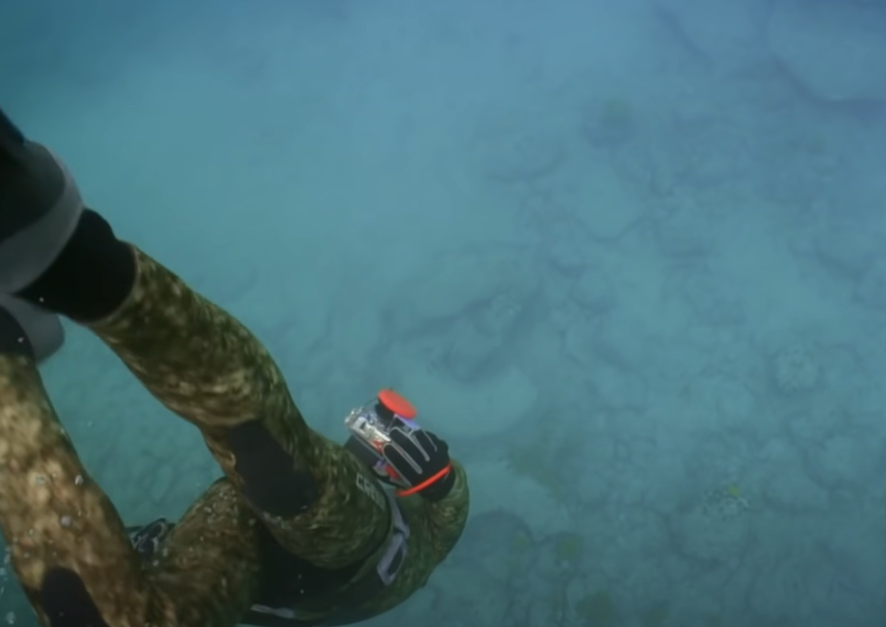 National Geographic, Drain the Oceans (2018-)
National Geographic, Drain the Oceans (2018-)
Has Any Physical Evidence Ever Been Found?
In 2011, a US-led research team found ancient structures deep underwater off the coast of Spain. The team believes that whether or not it was Atlantis specifically, they definitely found the ruins of an ancient, sunken city—which only fuels the mystery of Atlantis more.
But they’re not the only ones who found concrete evidence of a lost city—in 2024, another research team also made a remarkable discovery.
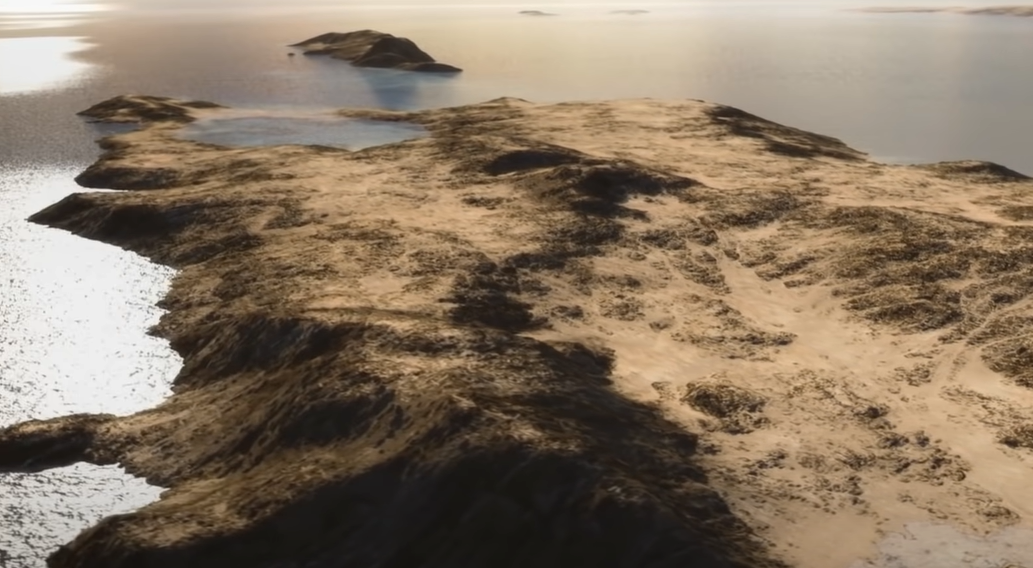 National Geographic, Drain the Oceans (2018-)
National Geographic, Drain the Oceans (2018-)
A Submerged Mountain
In recent years, scientists may have discovered evidence of the Lost City of Atlantis off the coast of the Canary Islands.
Researchers from Spain’s Geological and Mining Institute have been studying a submerged mountain, which they believe could be the origin of the Atlantis legend.
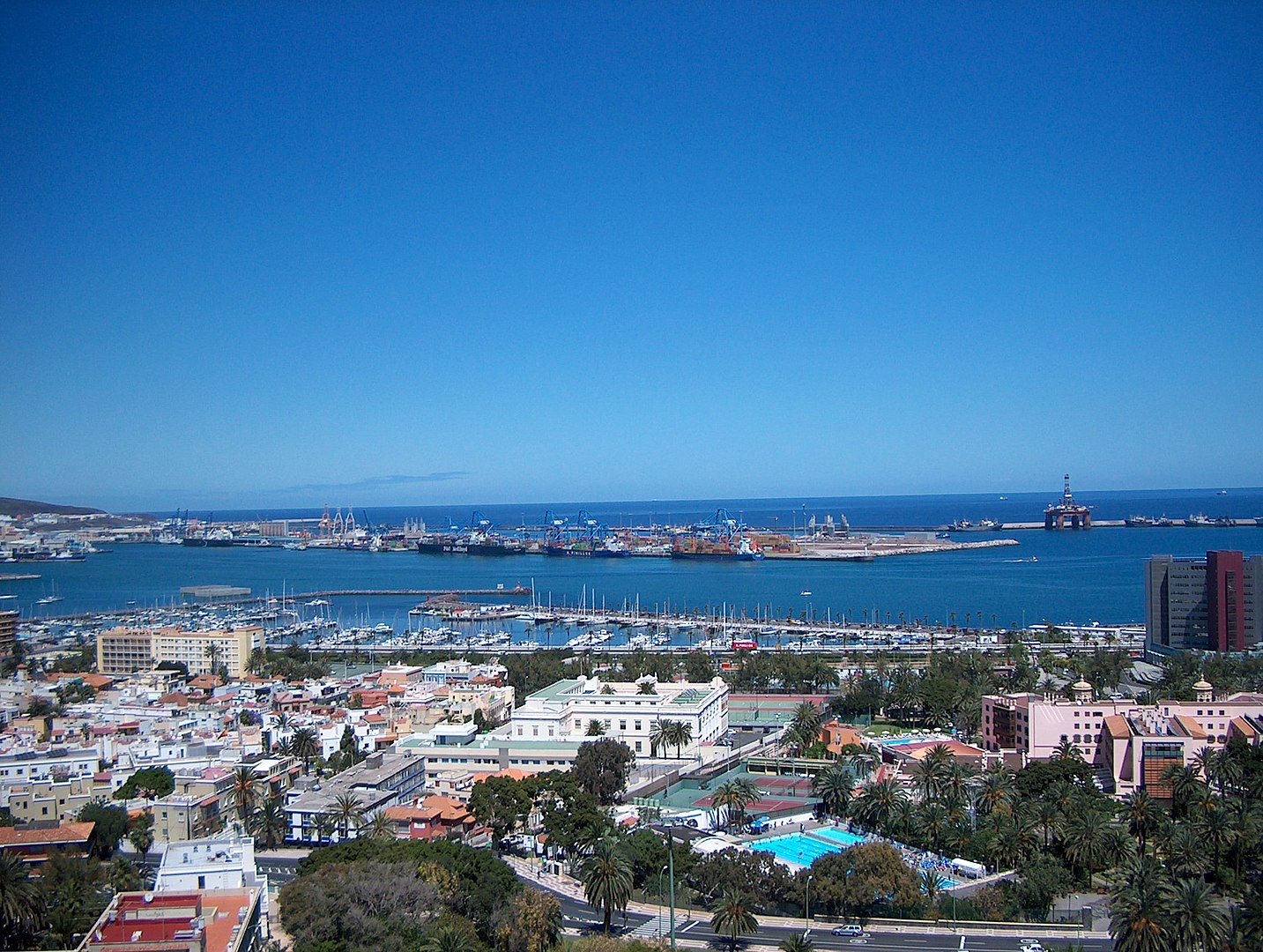 Matti Mattila, CC BY-SA 2.0, Wikimedia Commons
Matti Mattila, CC BY-SA 2.0, Wikimedia Commons
Mount Los Atlantes
The large seamount, named Mount Los Atlantes, was once part of a system of islands that existed around 50 million years ago. Over time, the islands sank into the ocean—something that still continues to happen today.
During the summer of 2024, the research team used remotely operated vehicles equipped with cameras and robotic arms to explore the area—and what they found was incredible.
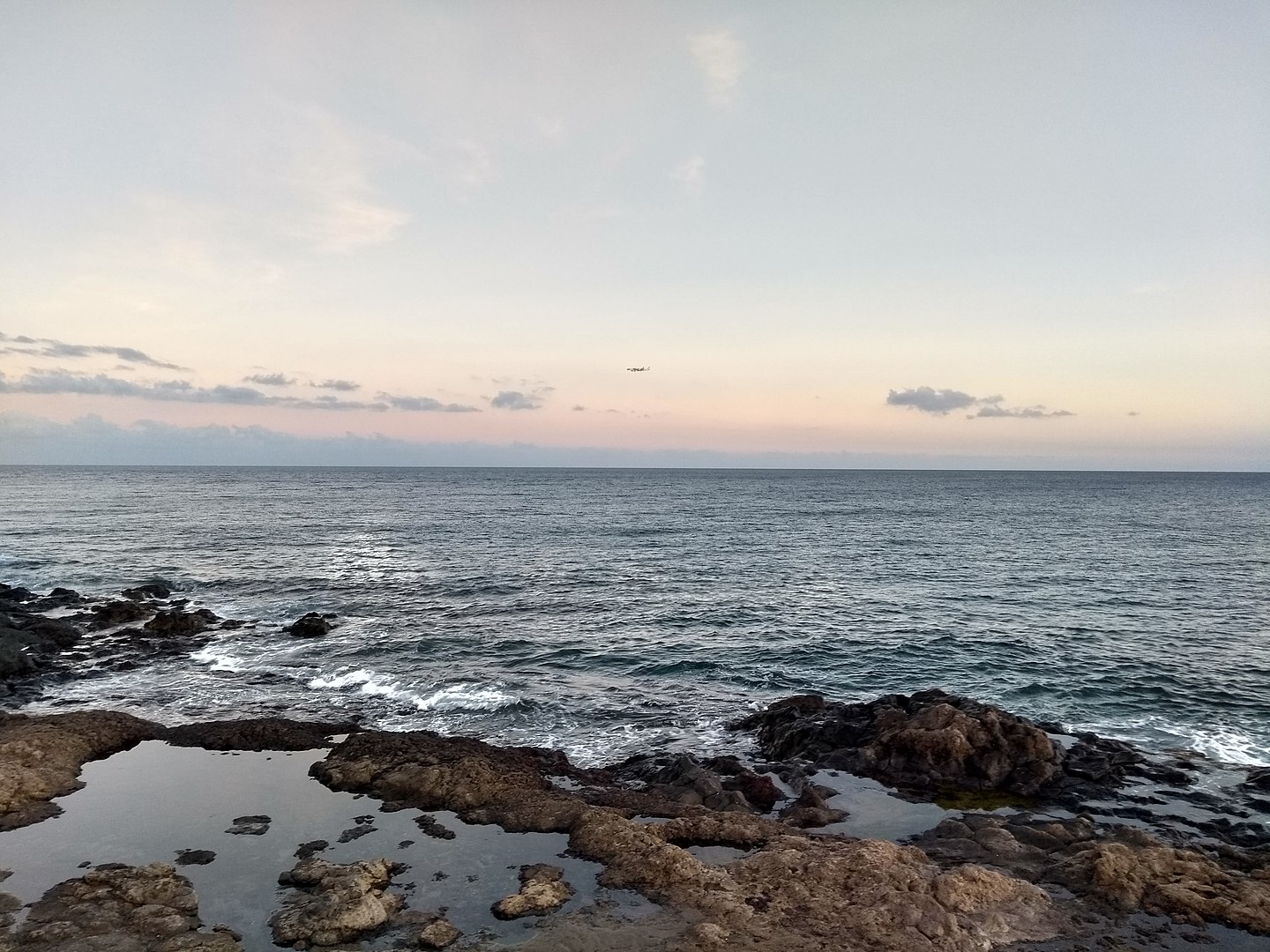 Xyzspaniel, CC BY-SA 4.0, Wikimedia Commons
Xyzspaniel, CC BY-SA 4.0, Wikimedia Commons
Evidence Of A Sunken Island
The seamount’s location and characteristics very closely match Plato’s descriptions. The presence of coral gardens, sponges, and areas covered with bacterial tapestries on the seamount itself support the idea that it was once a thriving island ecosystem.
And that’s not all.
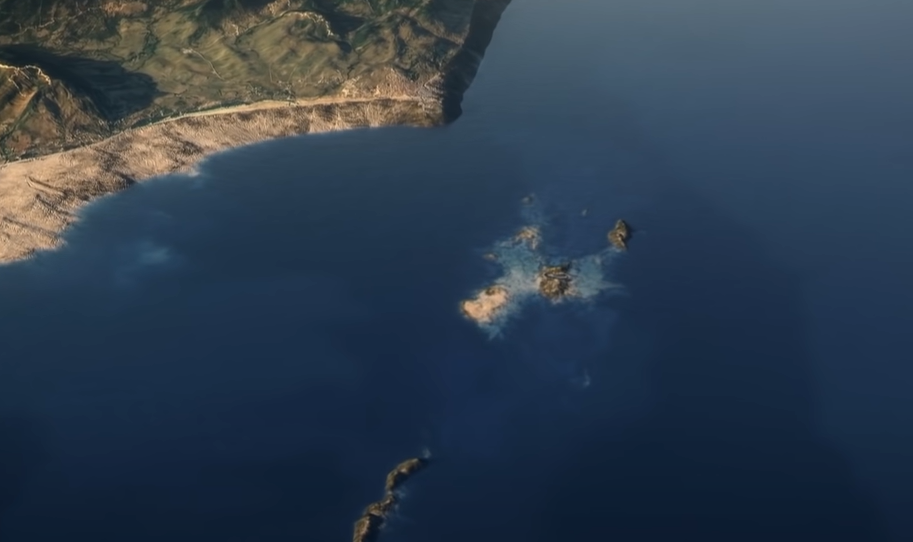 National Geographic, Drain the Oceans (2018-)
National Geographic, Drain the Oceans (2018-)
Ancient Beaches
Much of the area along the seamount still maintains its ancient beaches, deep below the surface, aligning perfectly with descriptions of the Lost City.
The research is ongoing.
If there is evidence of other sunken cities, why is the idea of Atlantis so far-fetched?
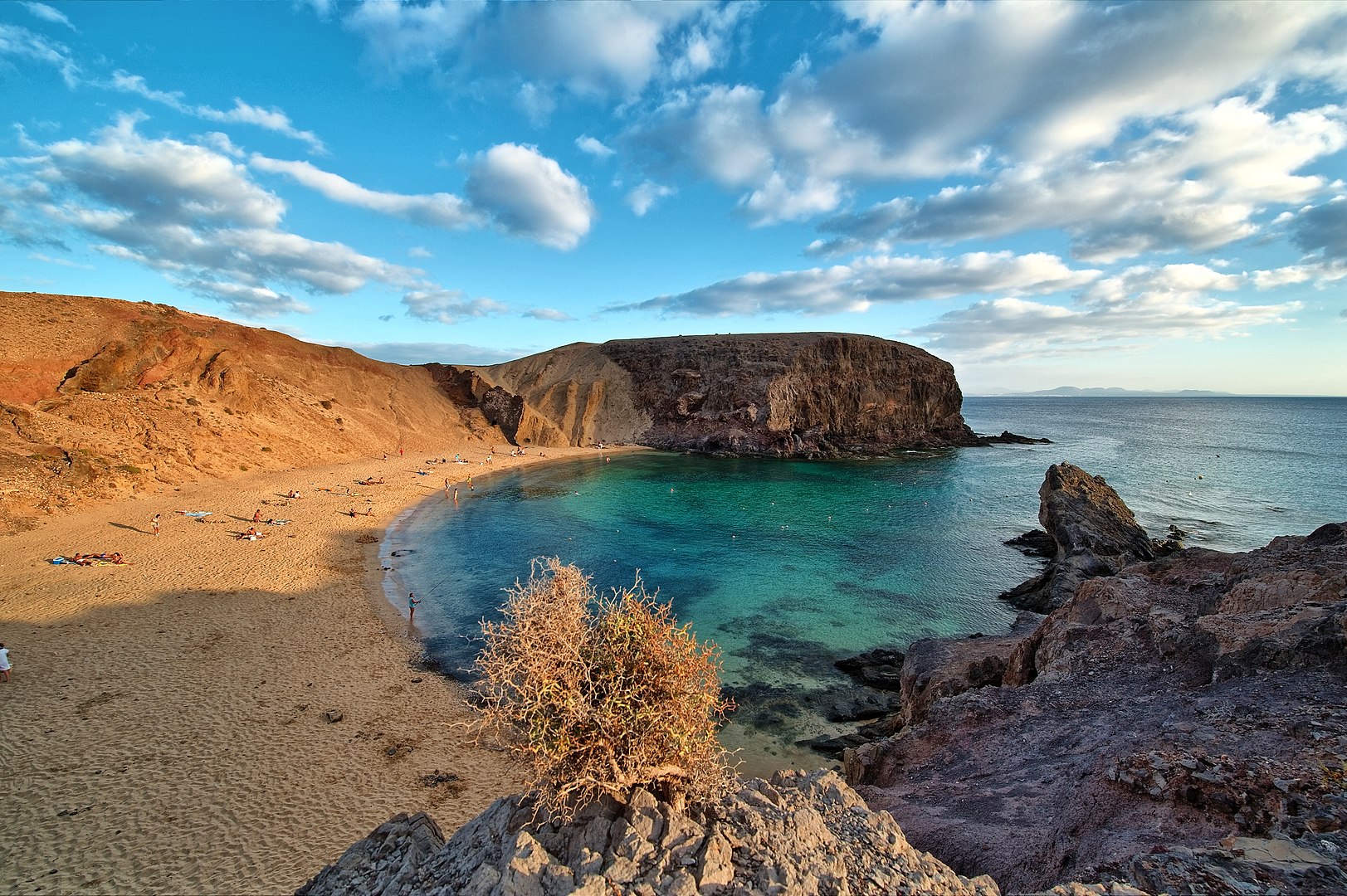 Lviatour, CC BY-SA 3.0, Wikimedia Commons
Lviatour, CC BY-SA 3.0, Wikimedia Commons
Ongoing Research
There are dozens of possible discoveries of Atlantis, including explorations that are still set to take place in 2024 and 2025. Many of these teams are funded by large organizations who seem to truly believe in their studies, including a diverse team of researchers, known as SUBNORDICA, who are funded by the European Research Council.
SUBNORDICA is currently exploring a submerged landmass in the North Sea, known as "Doggerland". So far, they’ve made incredible discoveries and are gearing up for more.
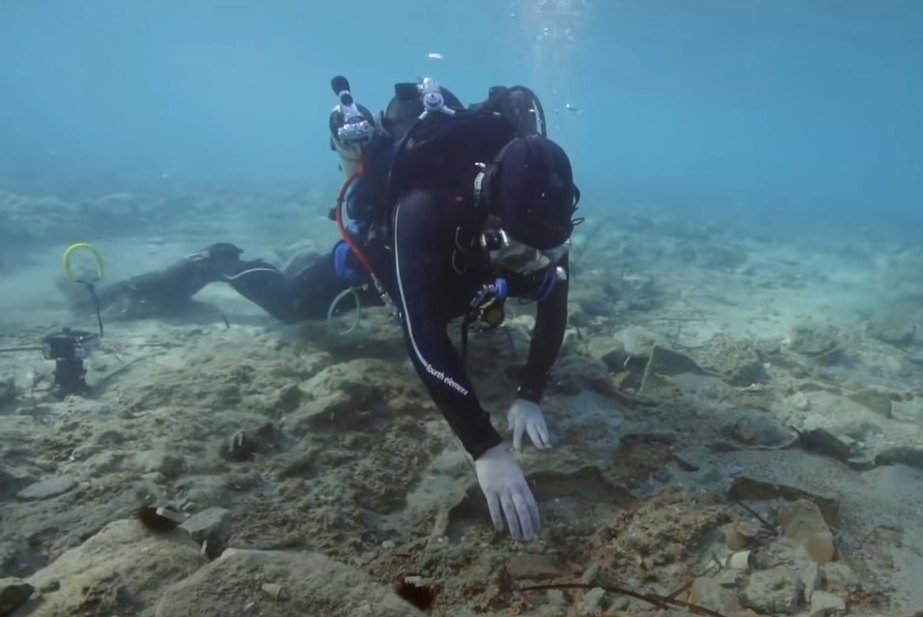 National Geographic, Drain the Oceans (2018-)
National Geographic, Drain the Oceans (2018-)
What Do You Think?
The mystery of the Lost City of Atlantis will never die. After thousands of years, there are still teams of people who dedicate their life’s research to making this incredible discovery—and they’re getting closer and closer every day.
What do you think? Was Atlantis real? And if so, will we ever find it?

